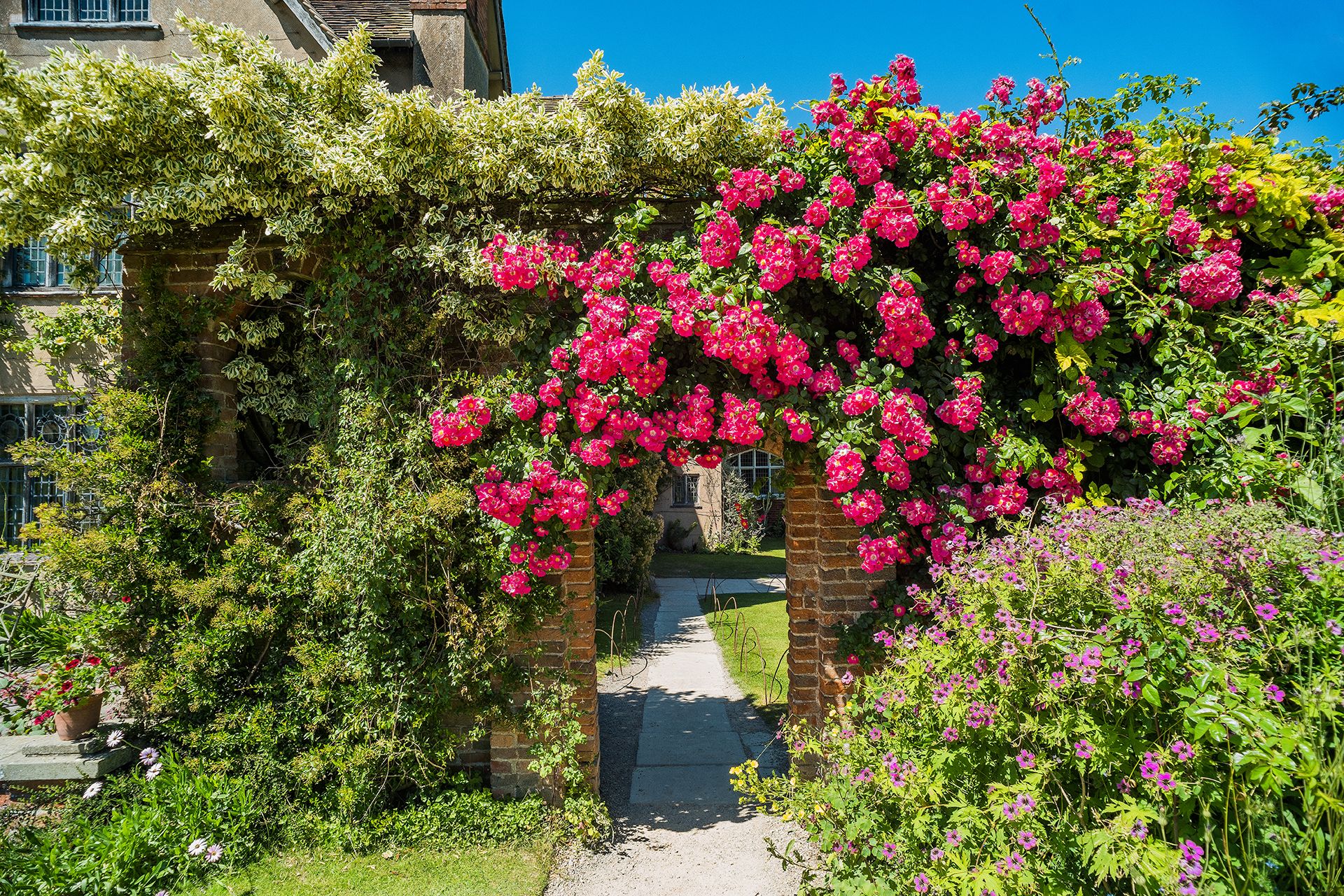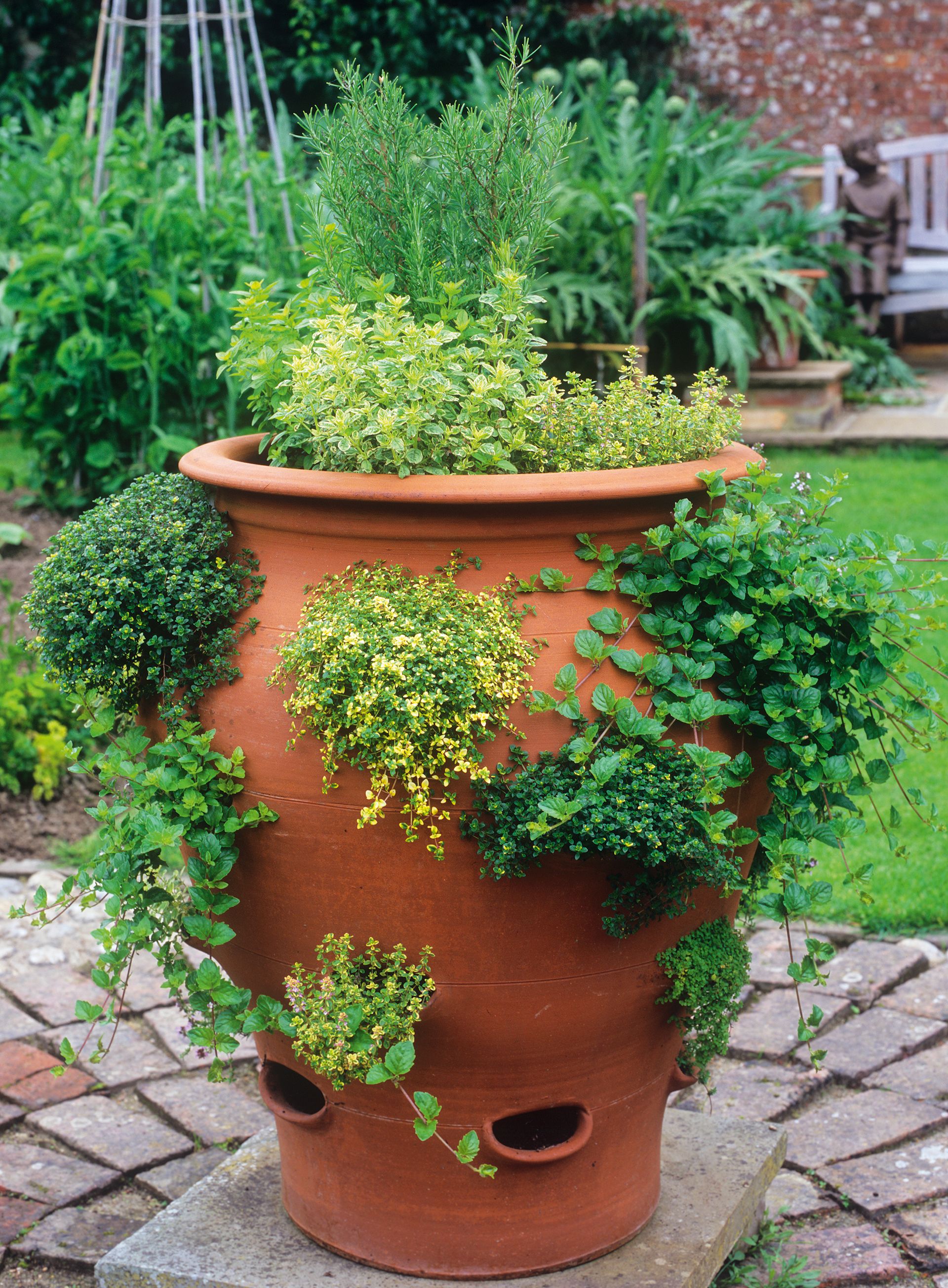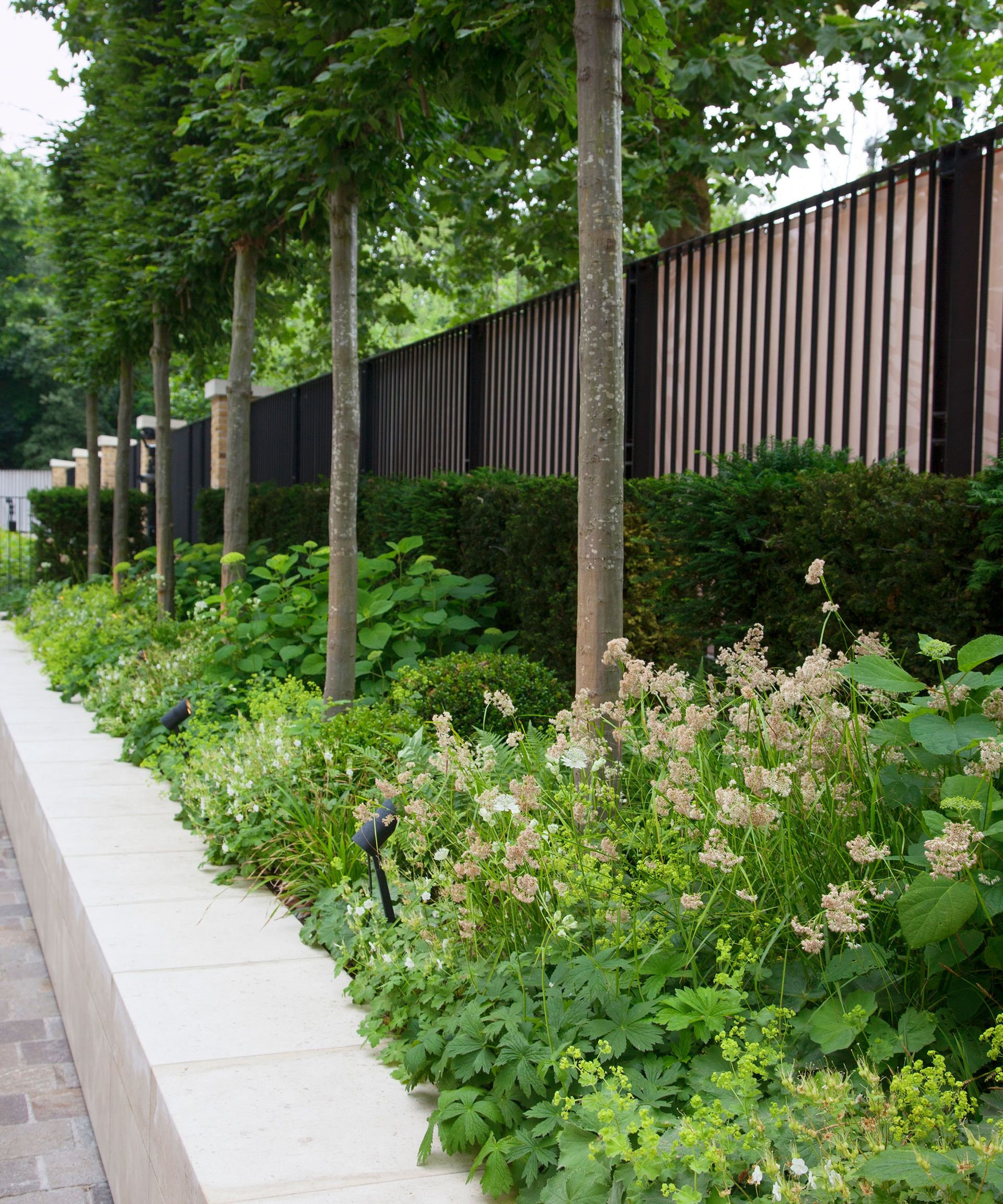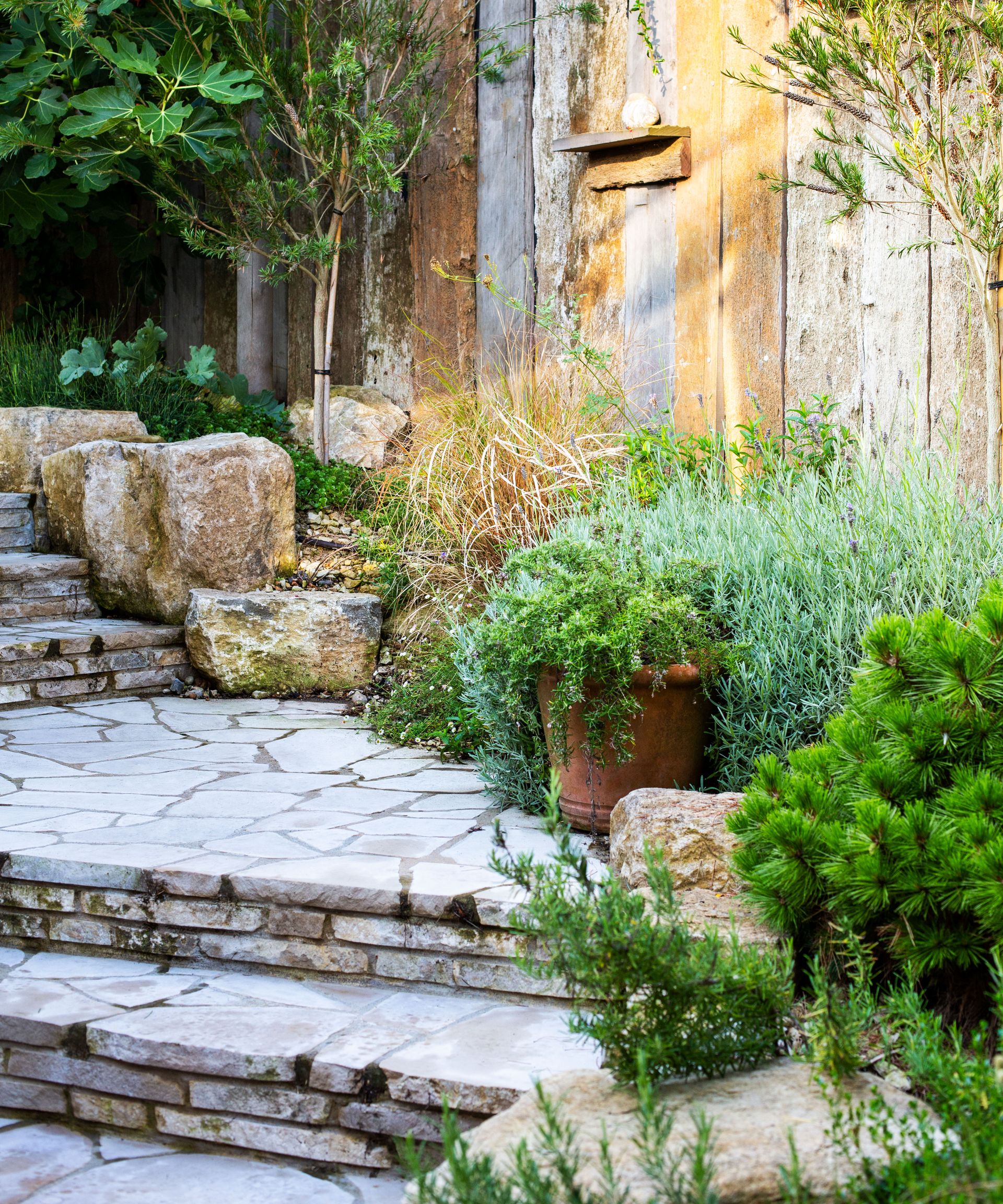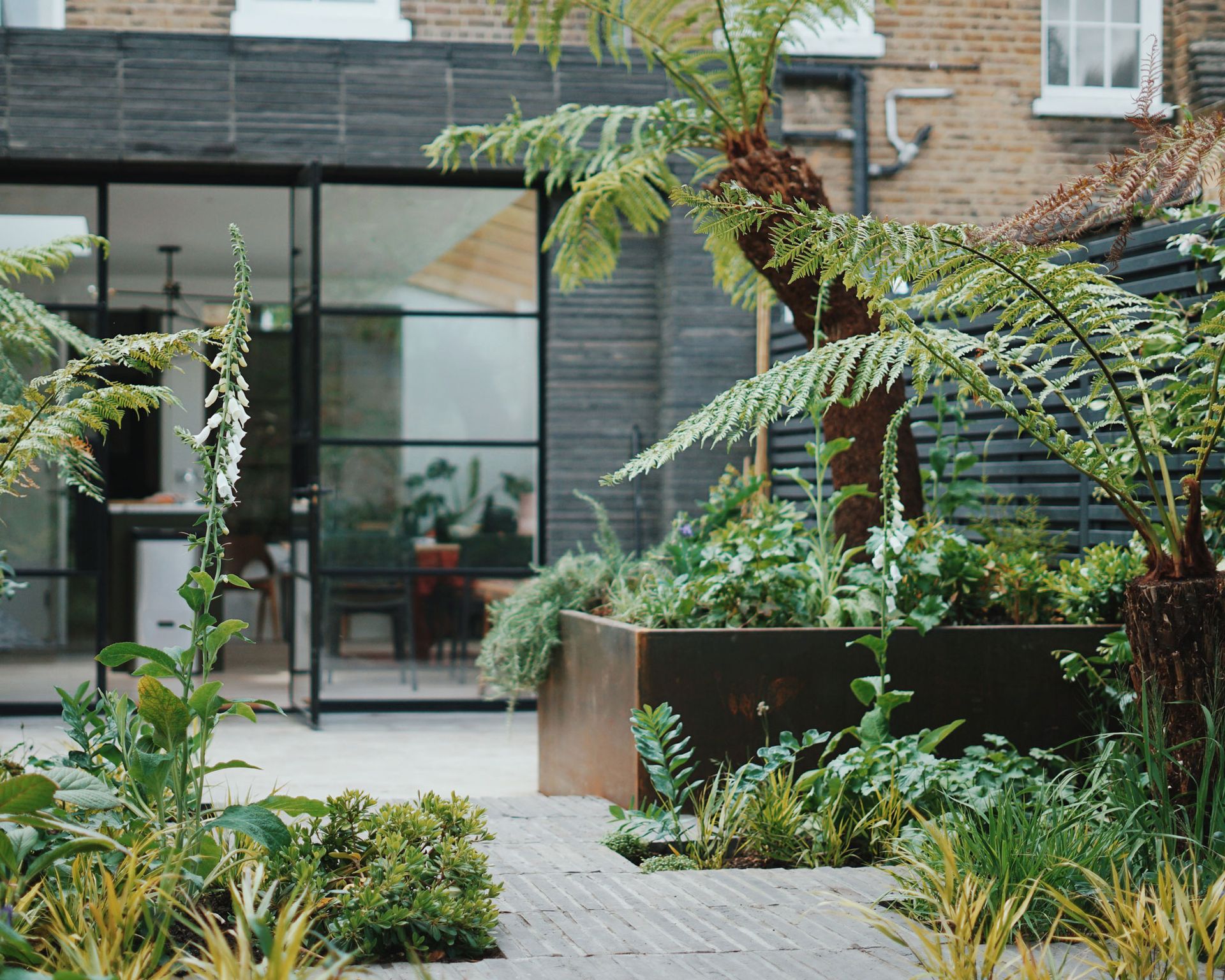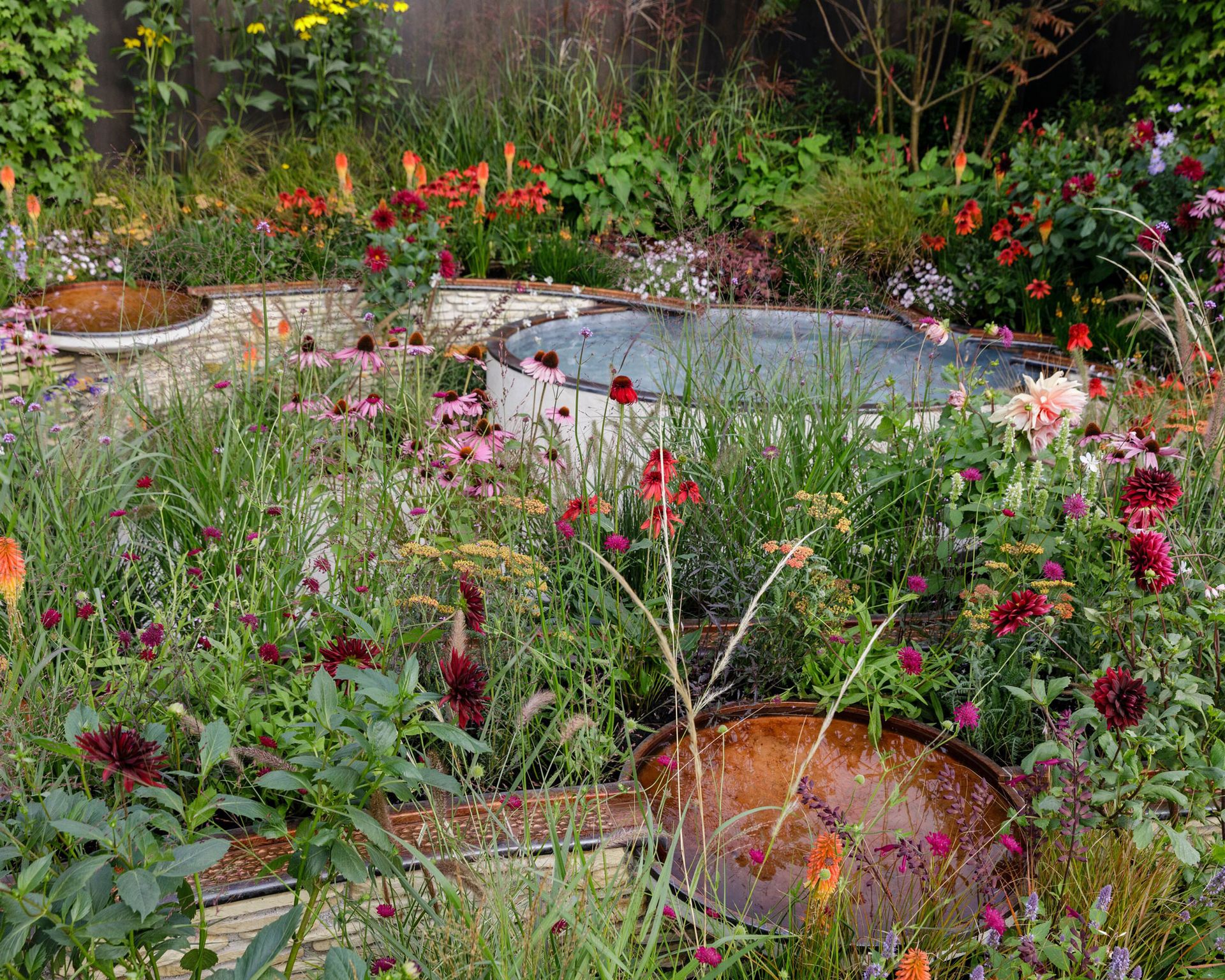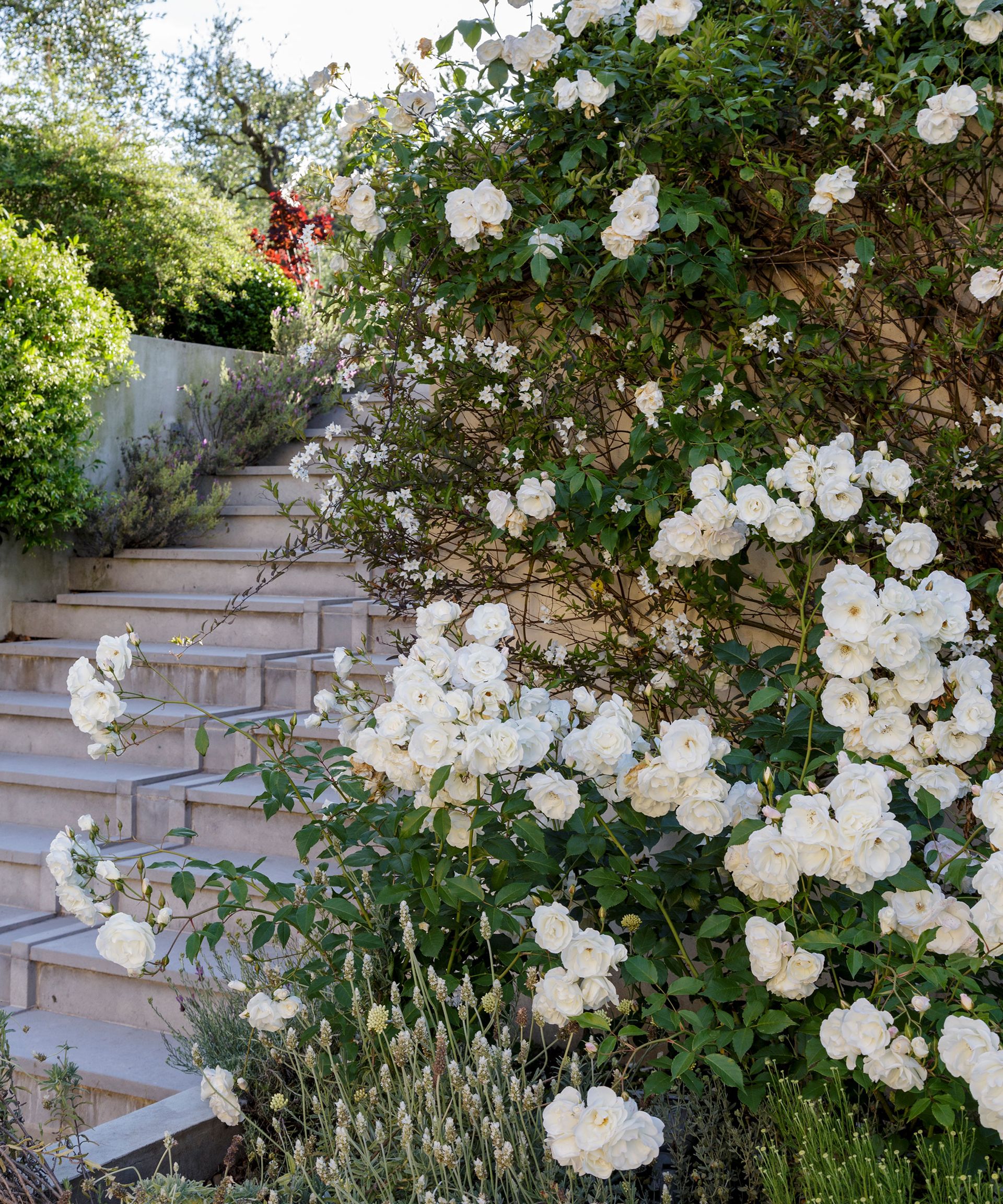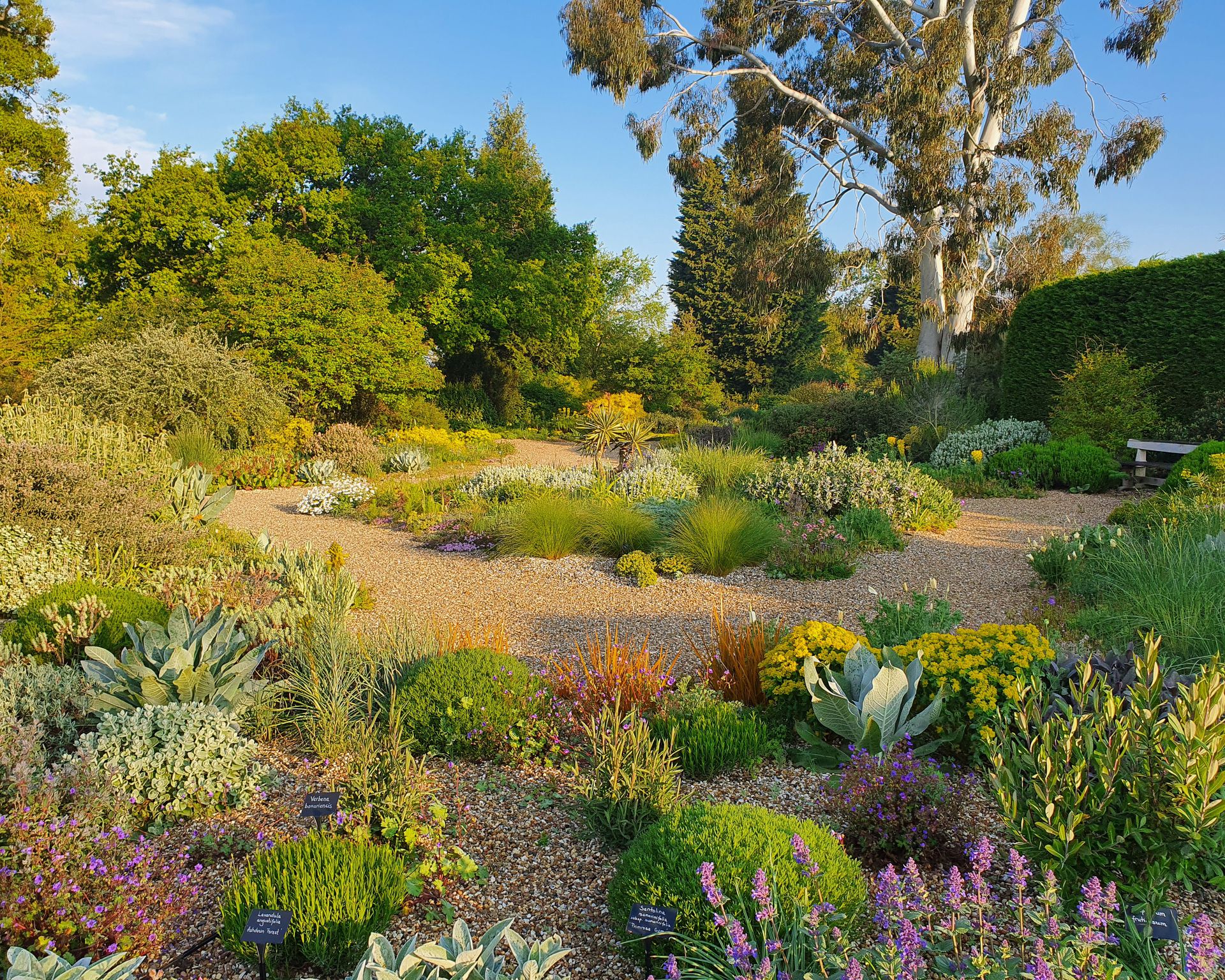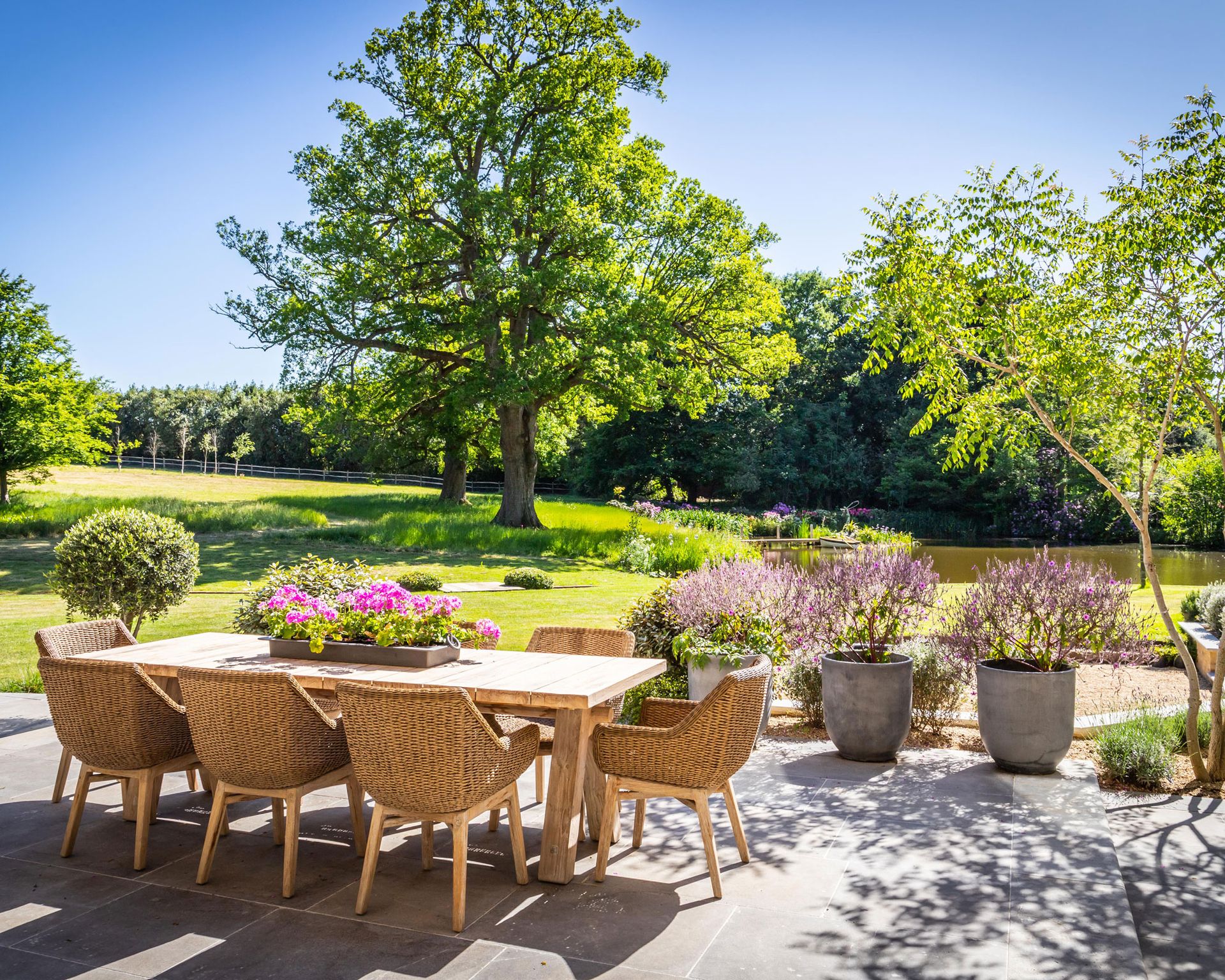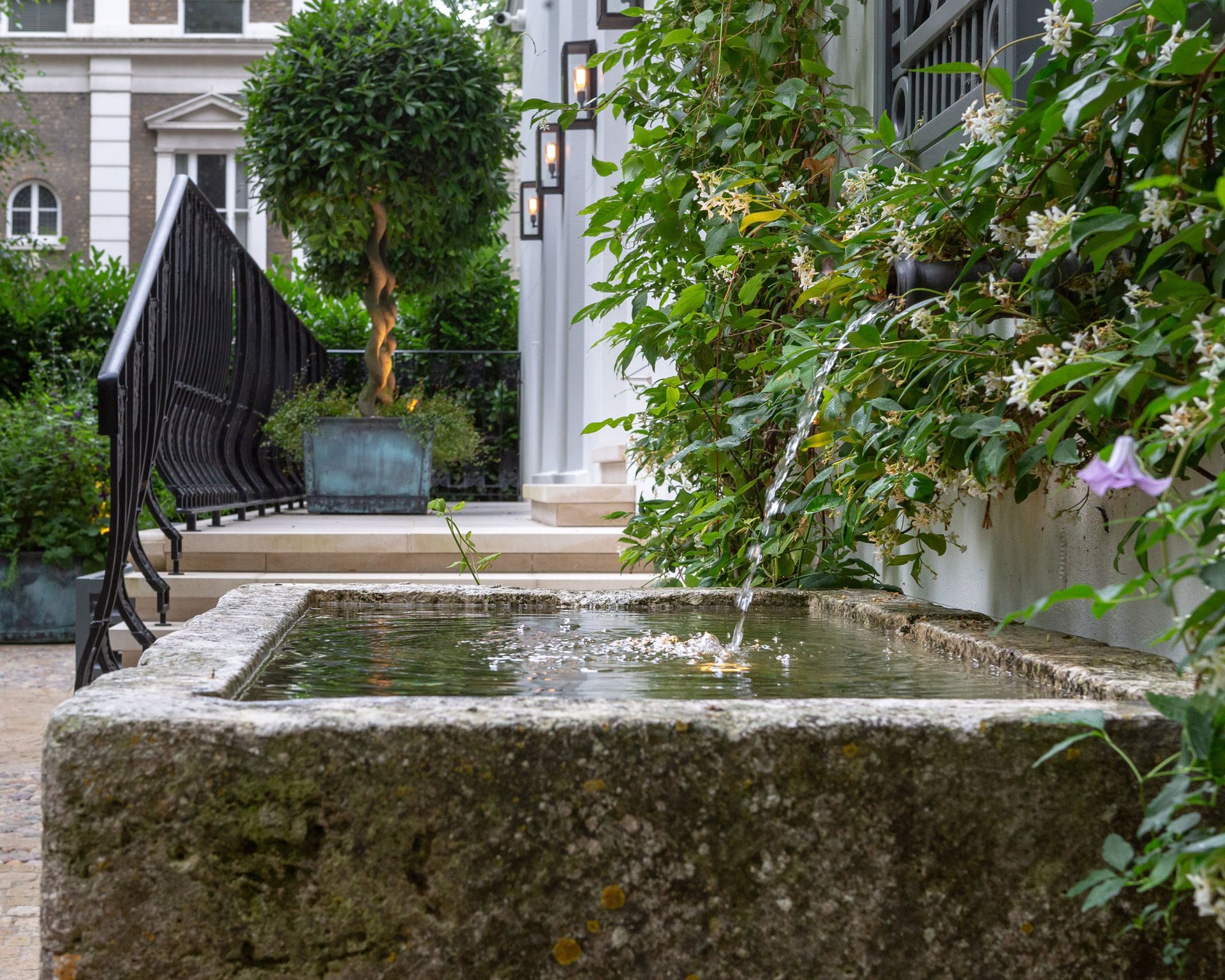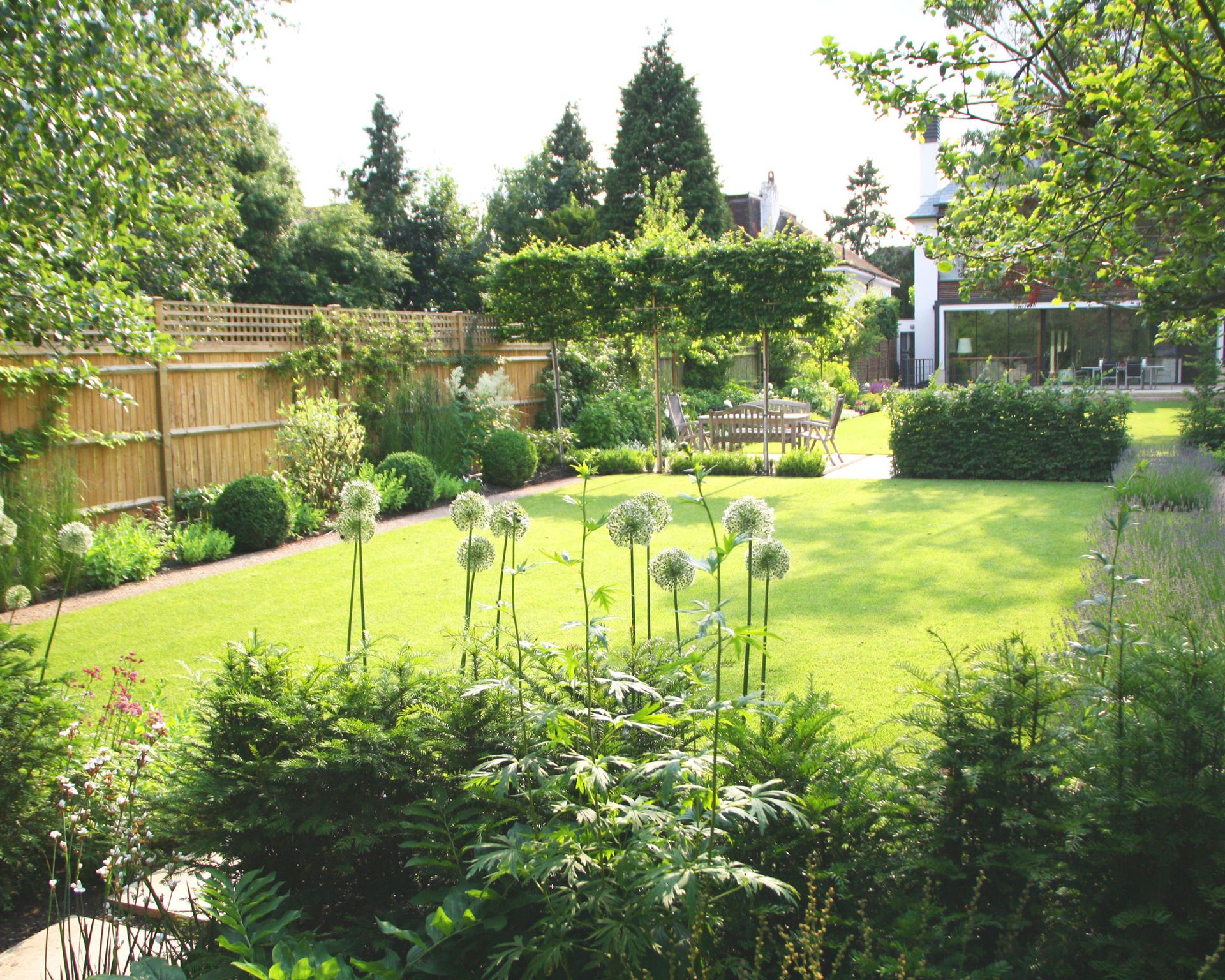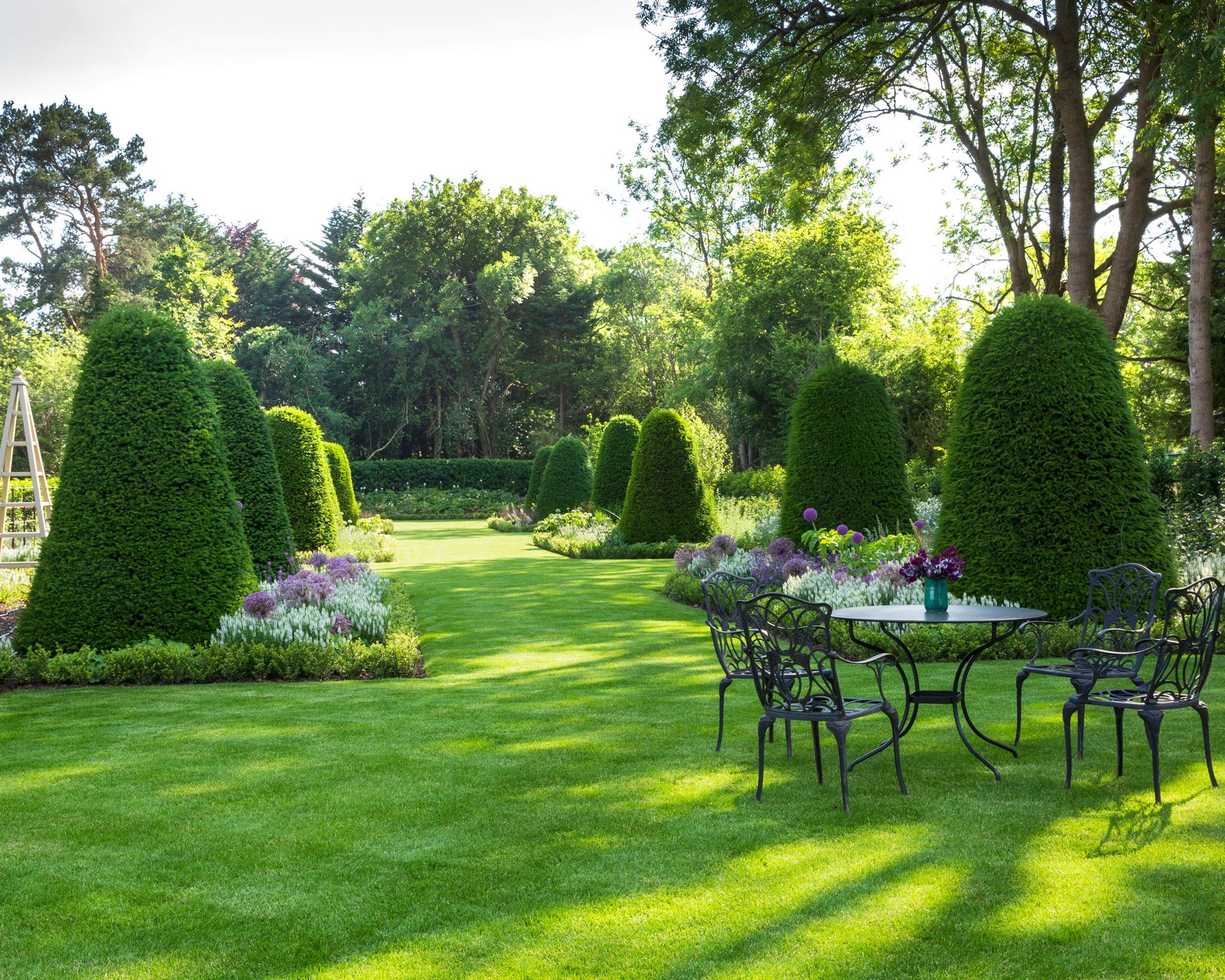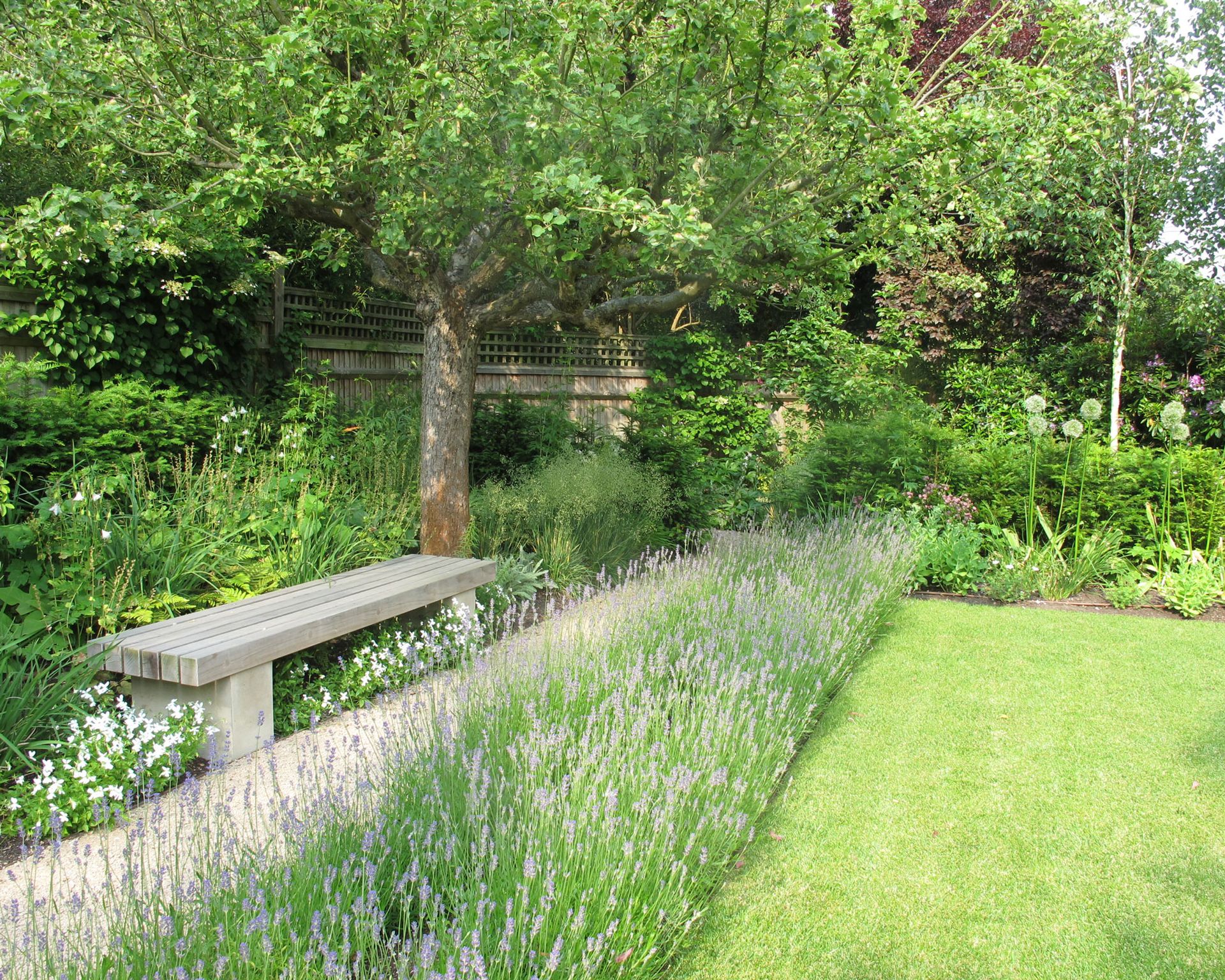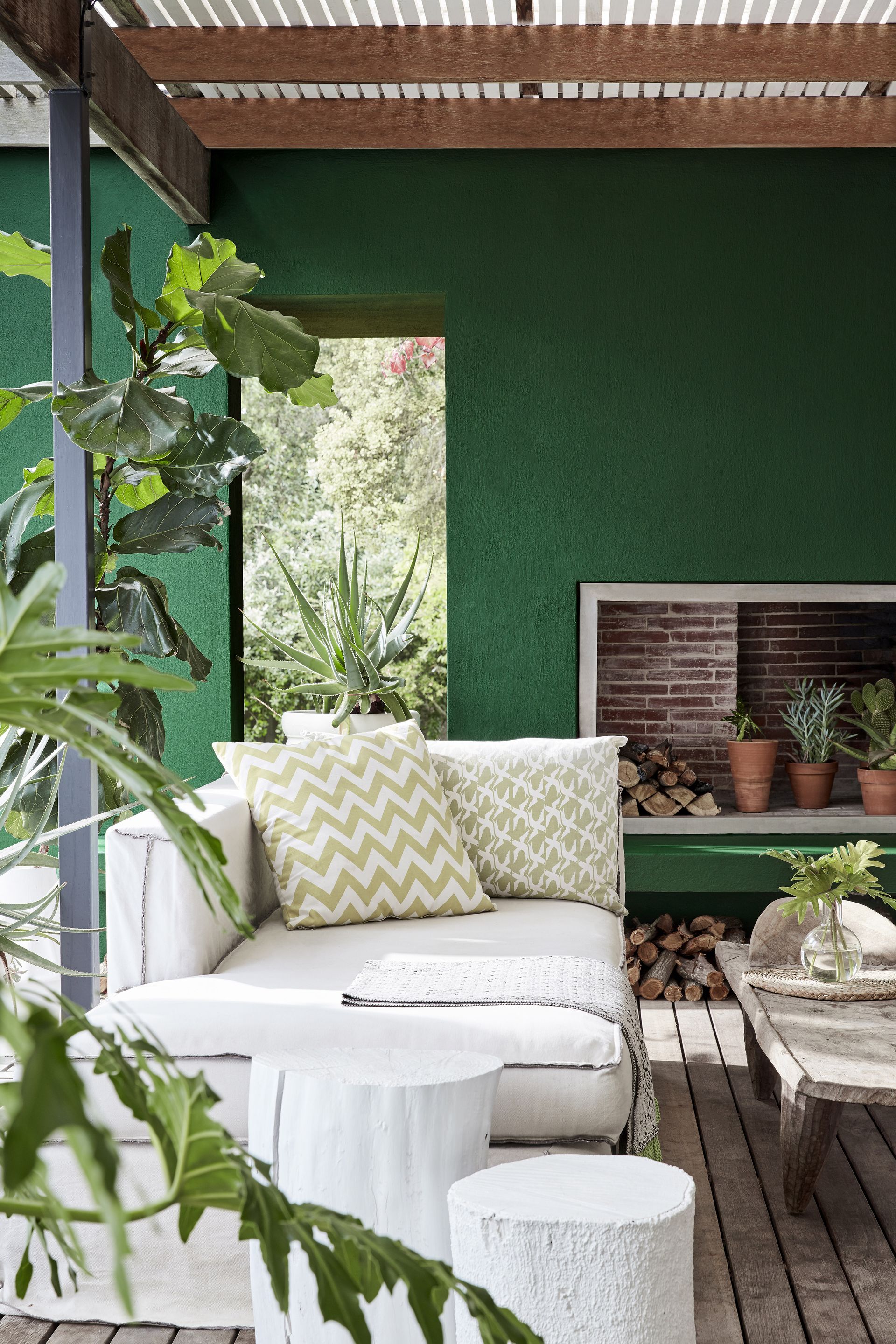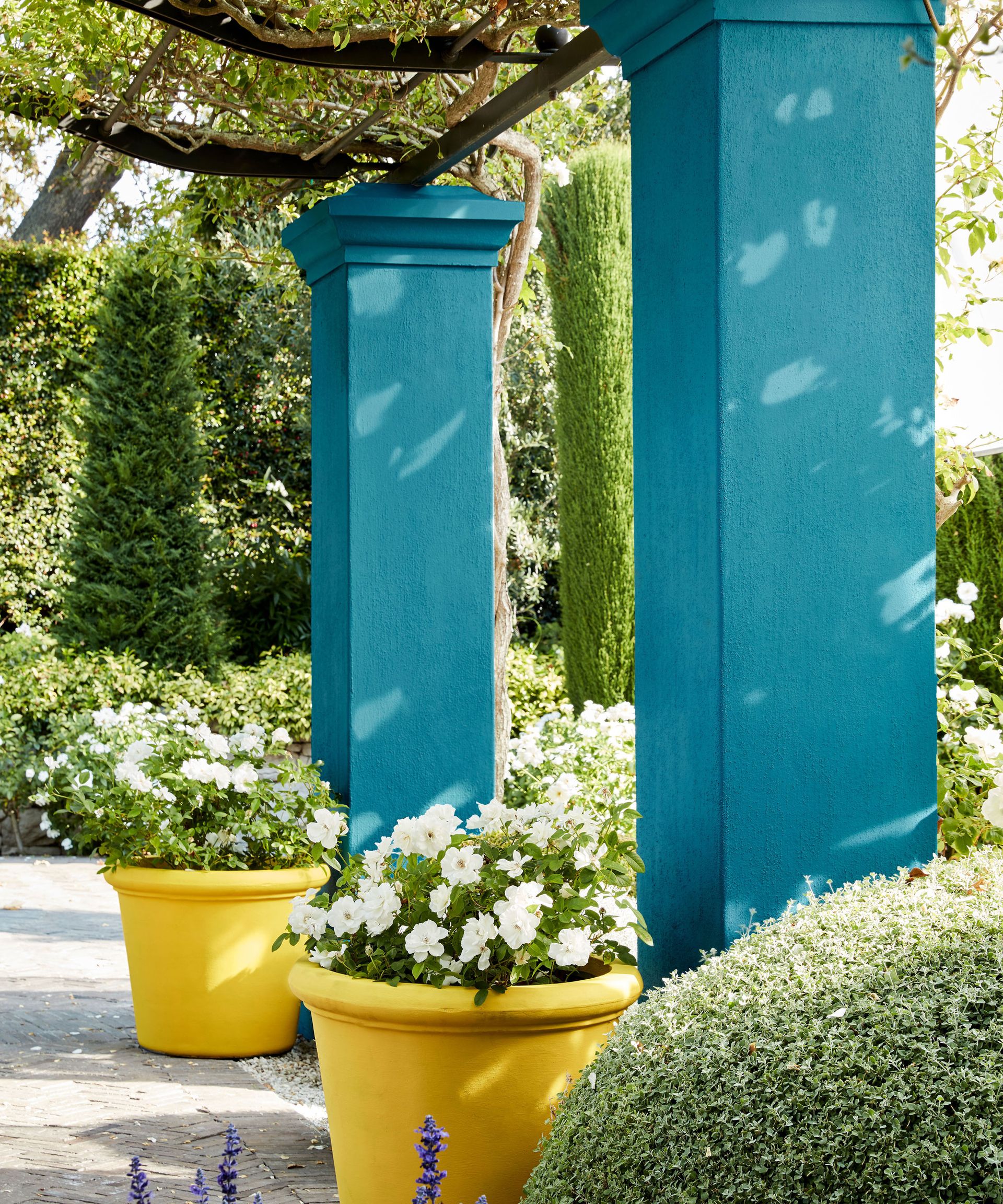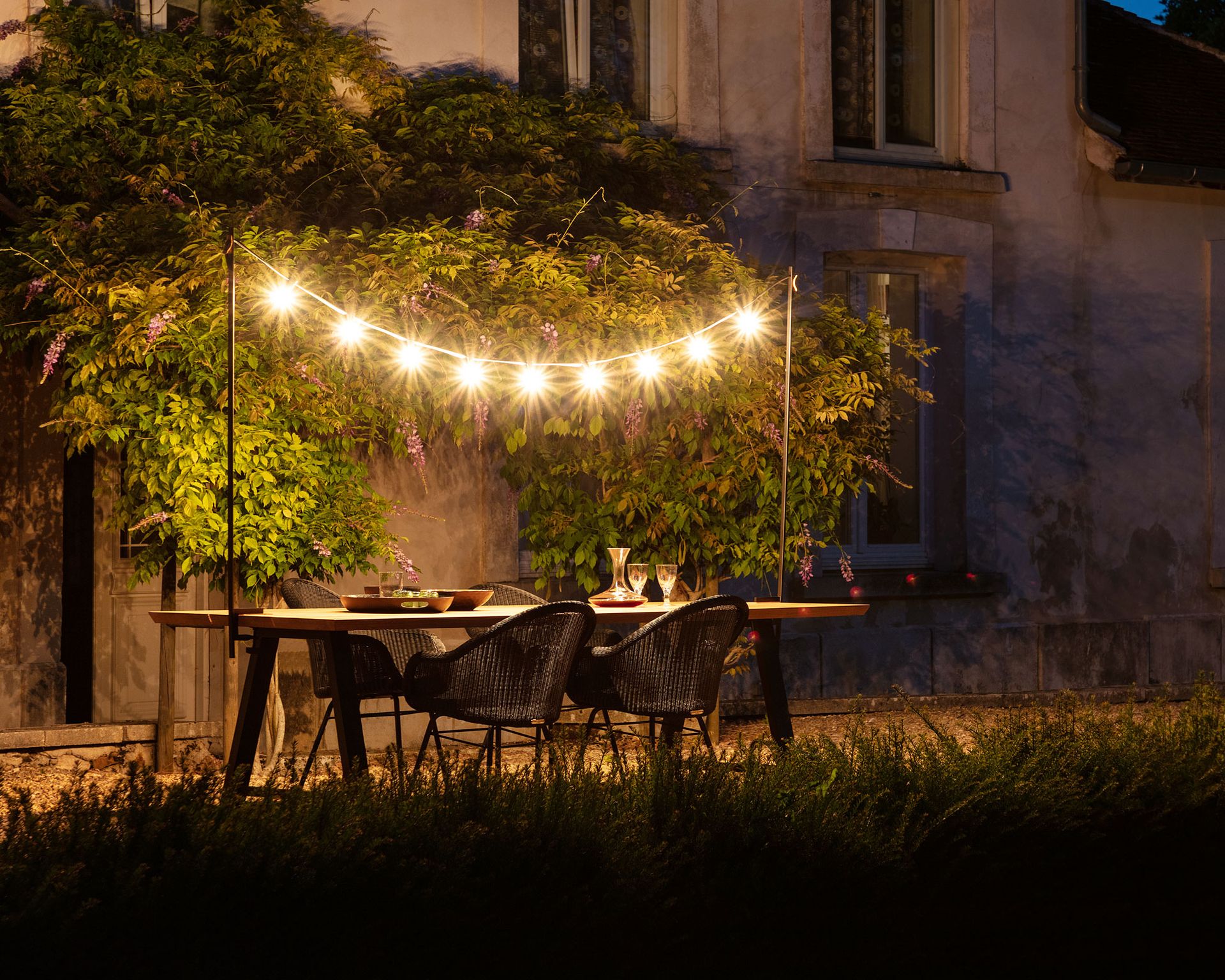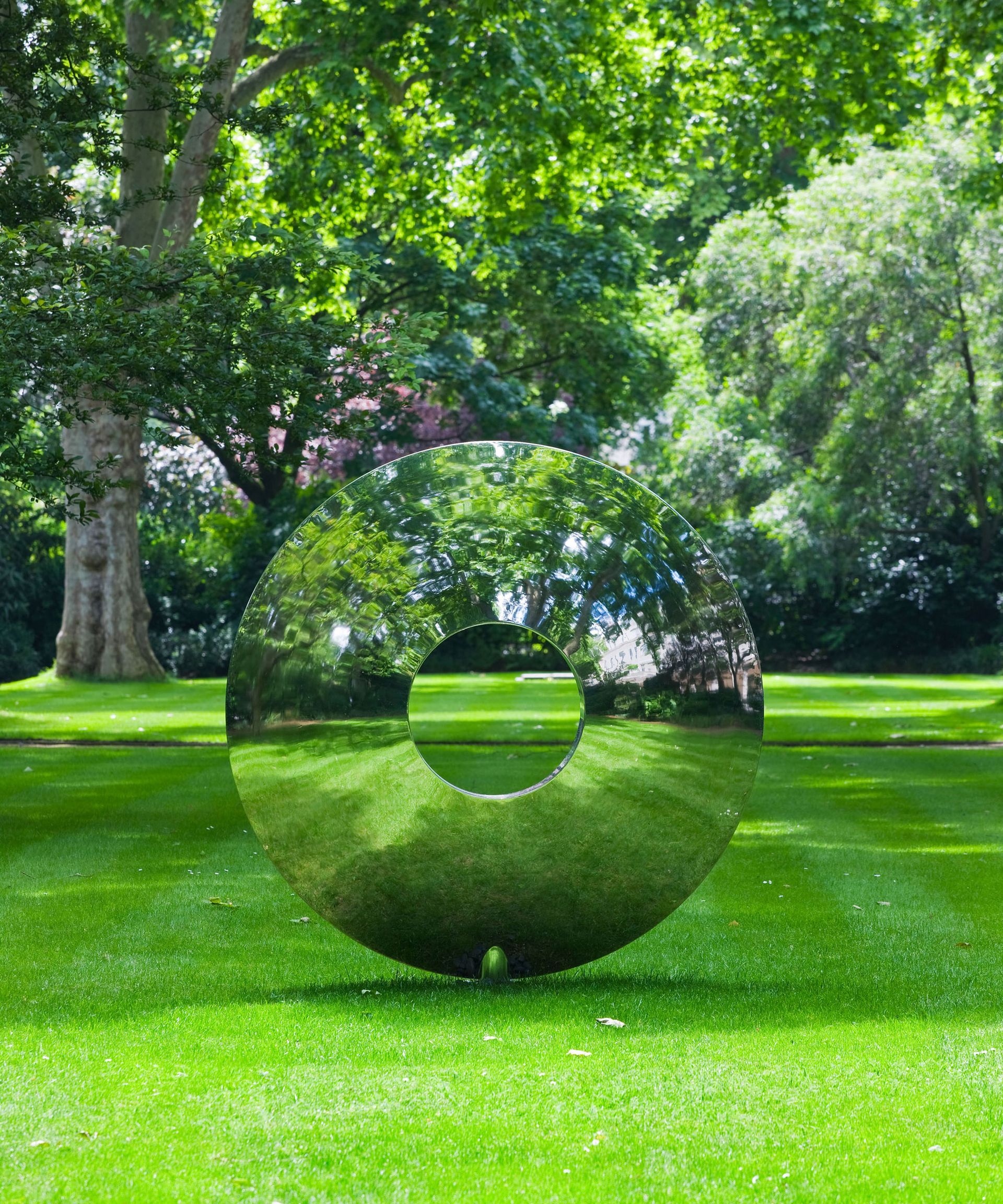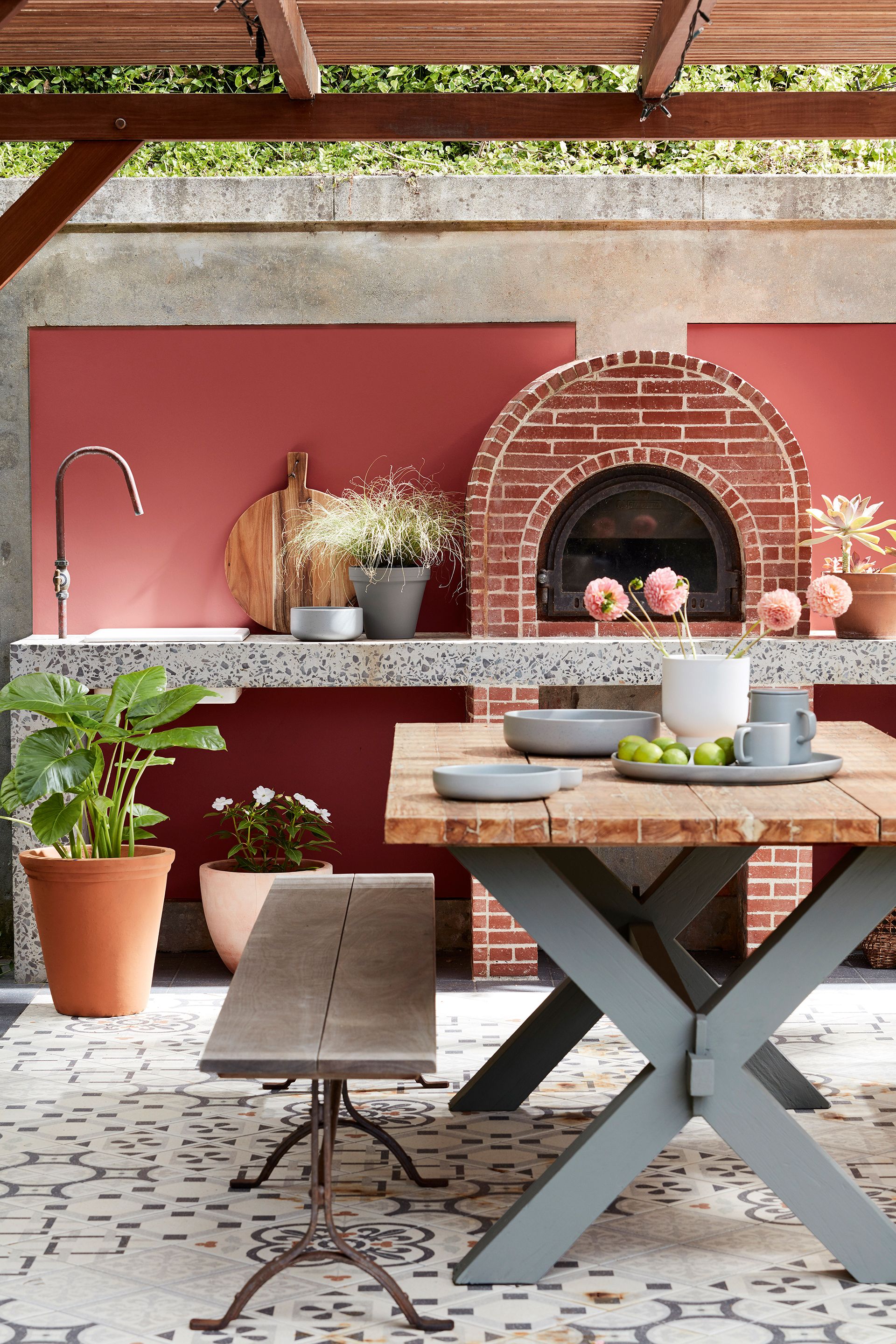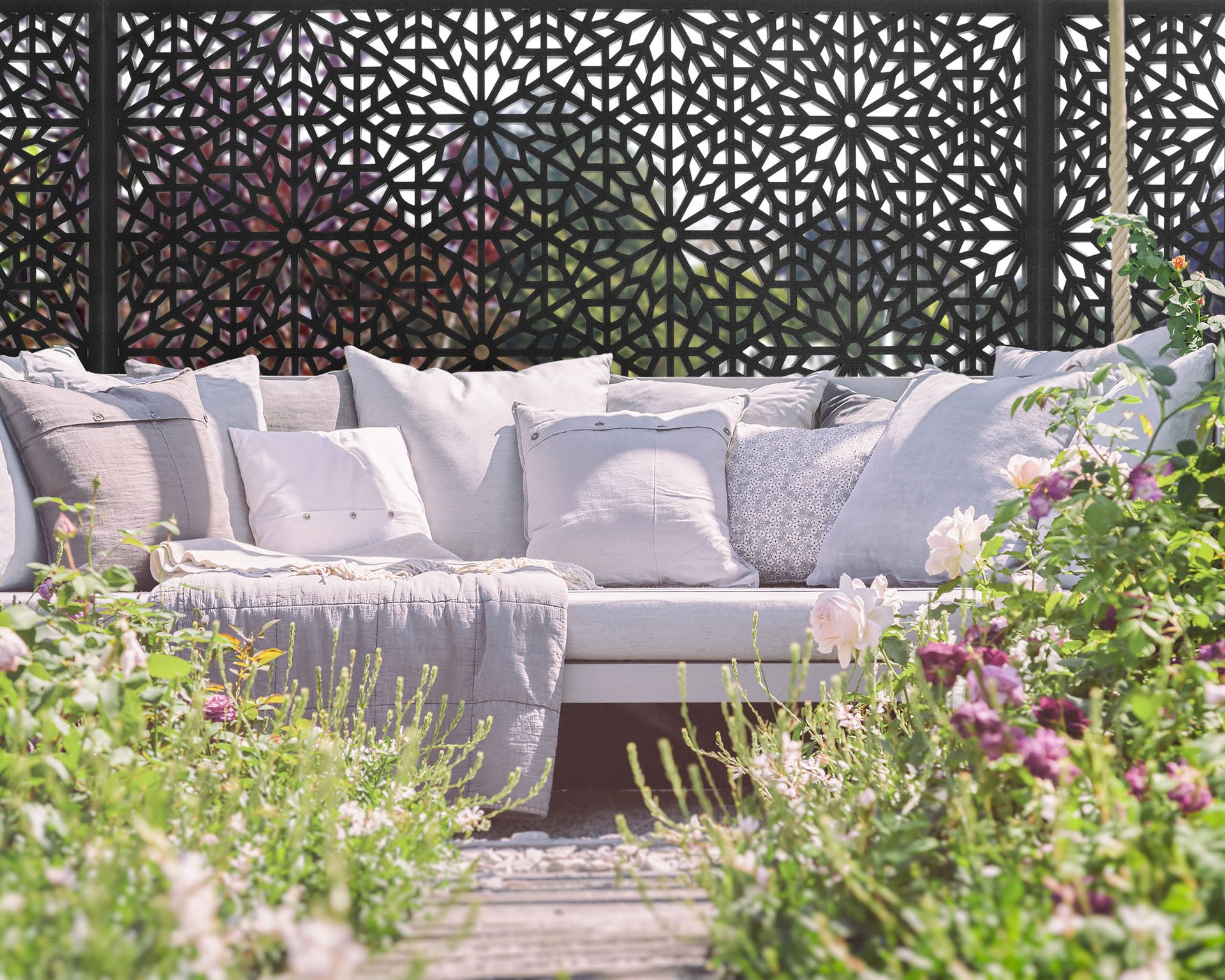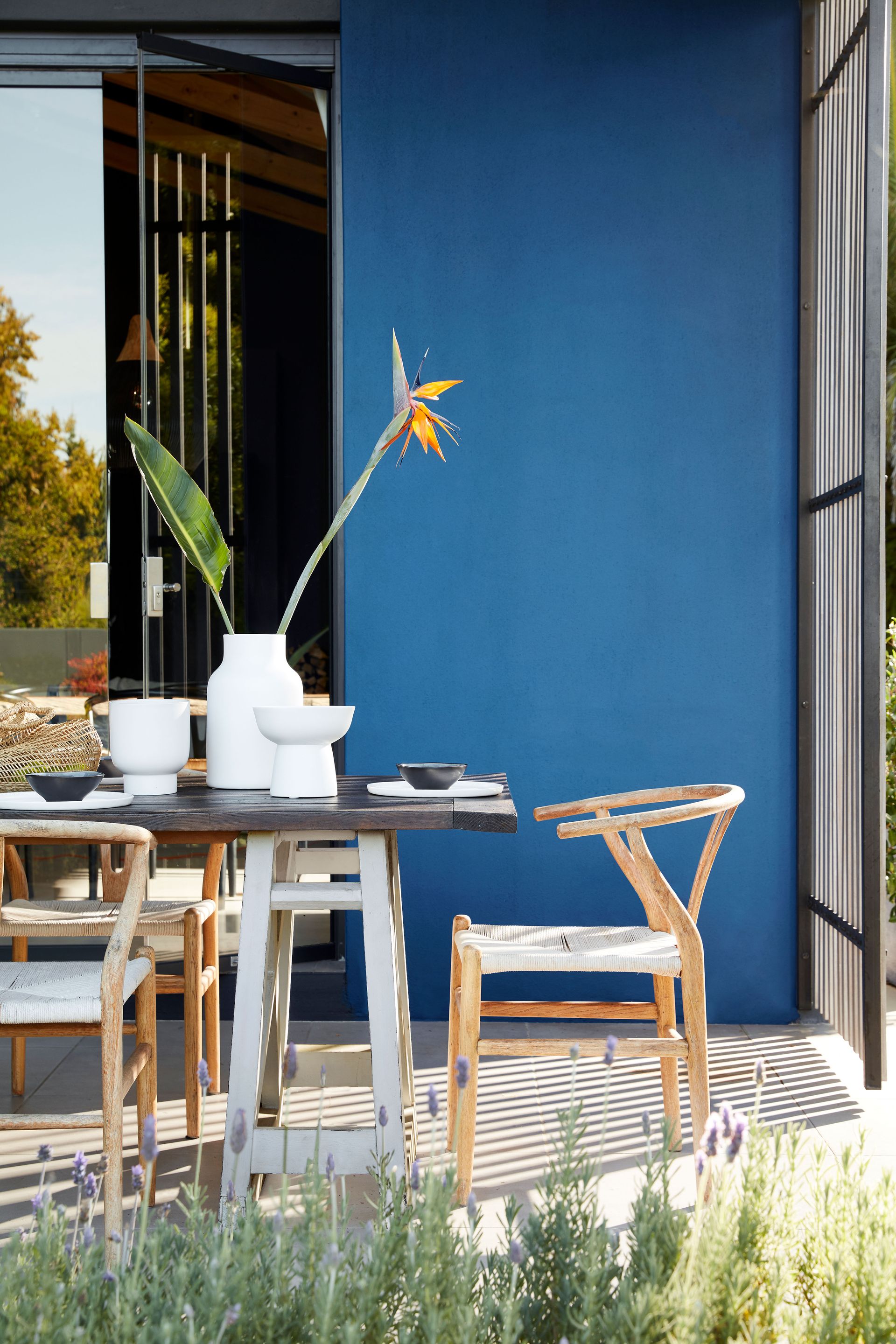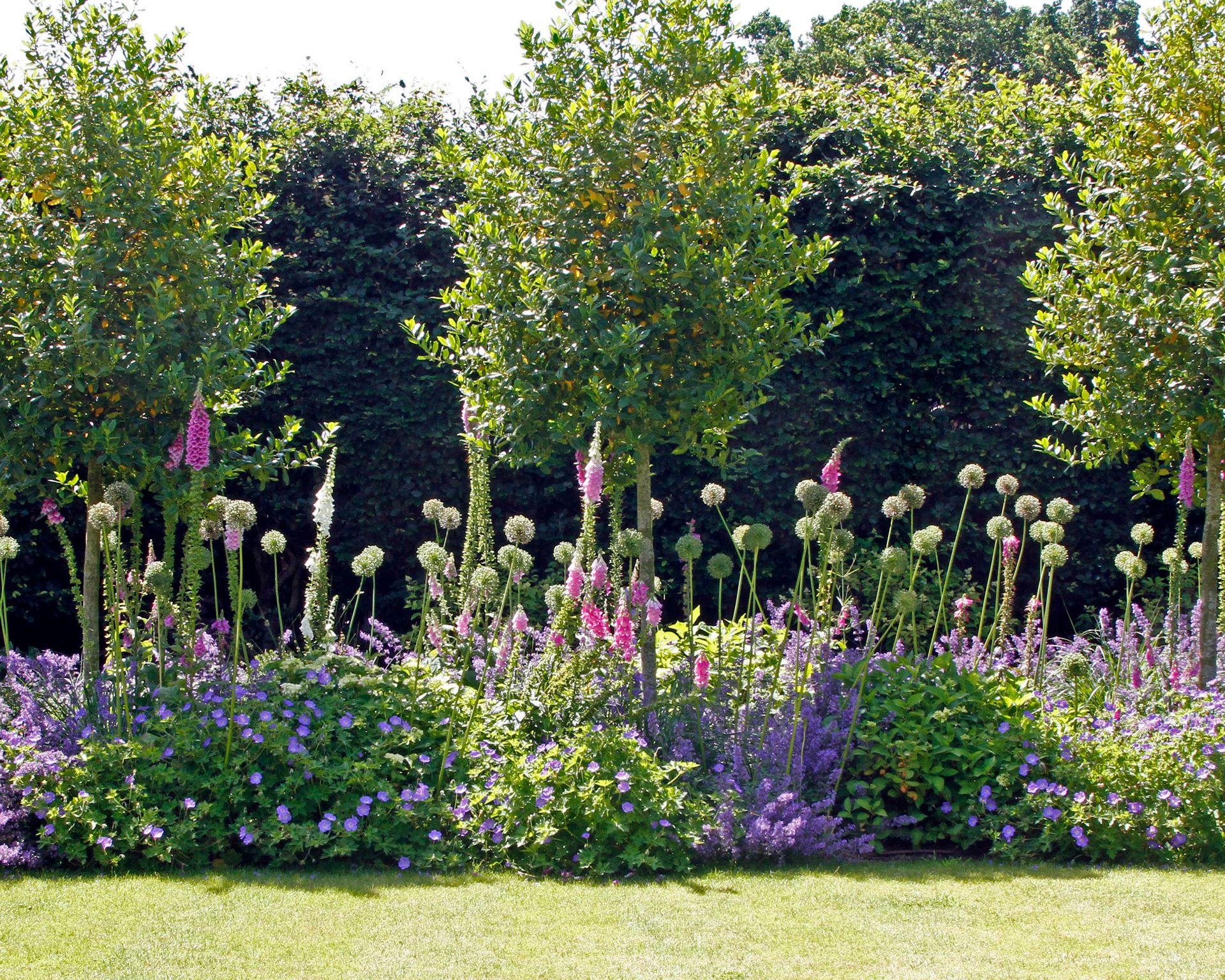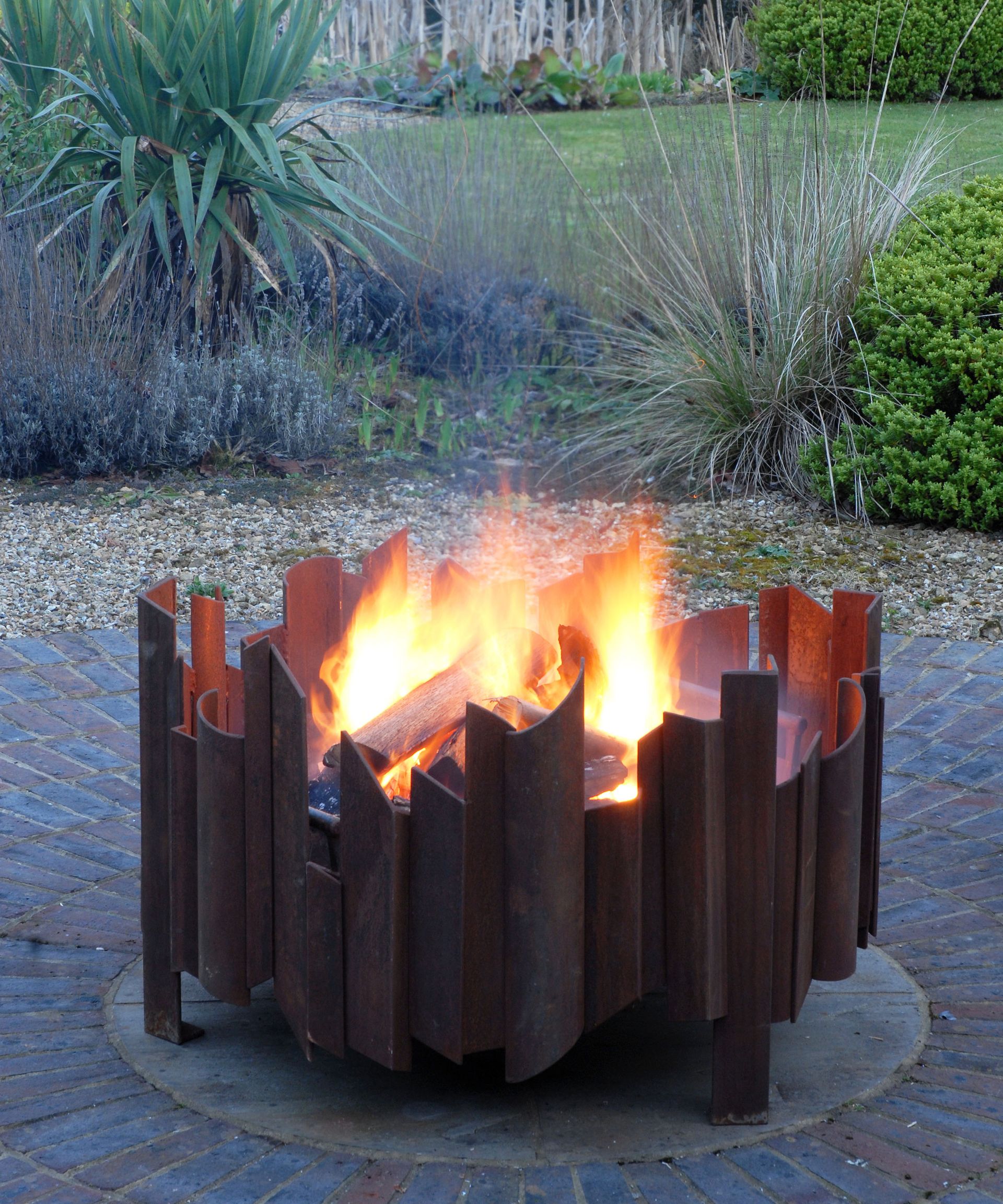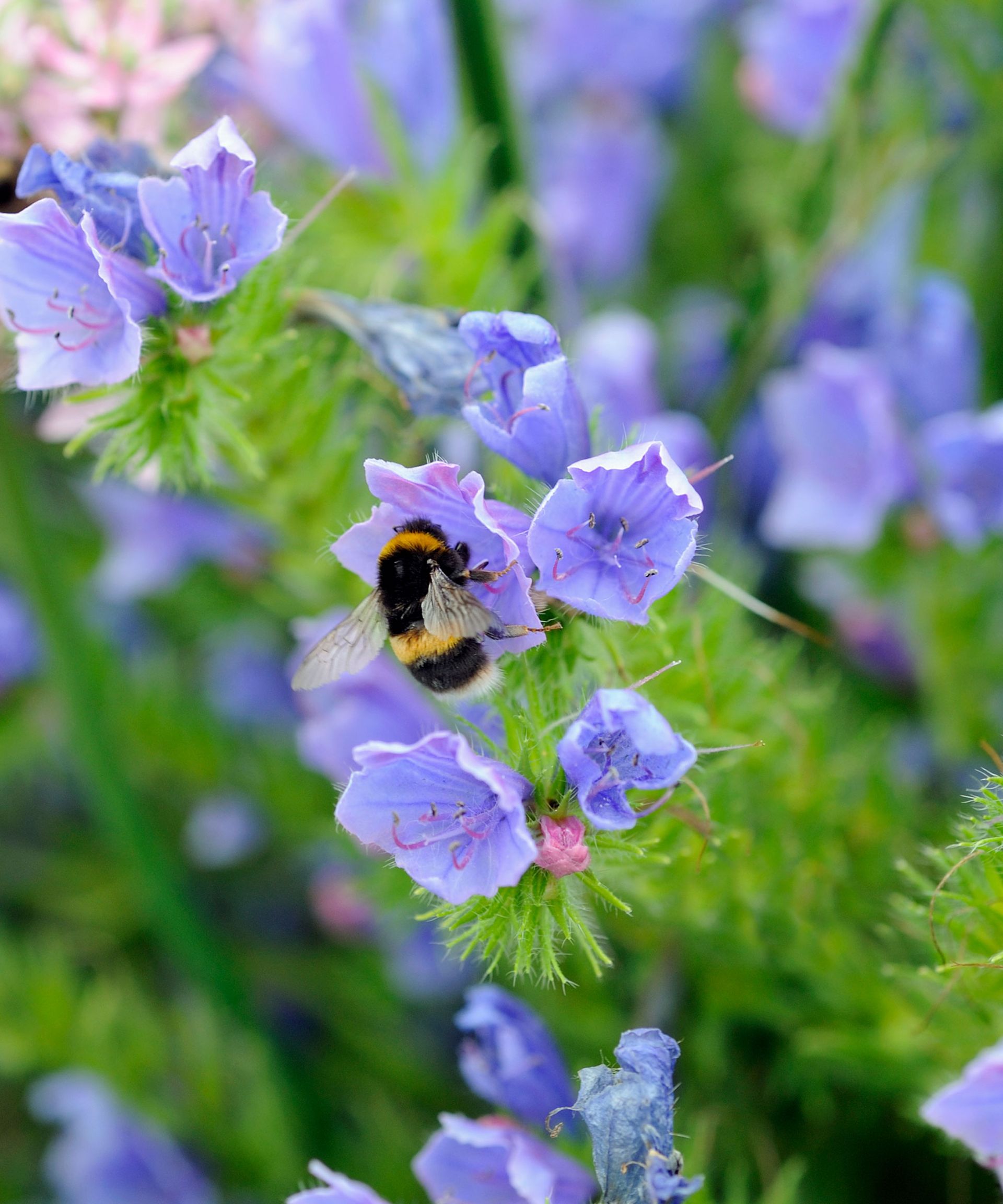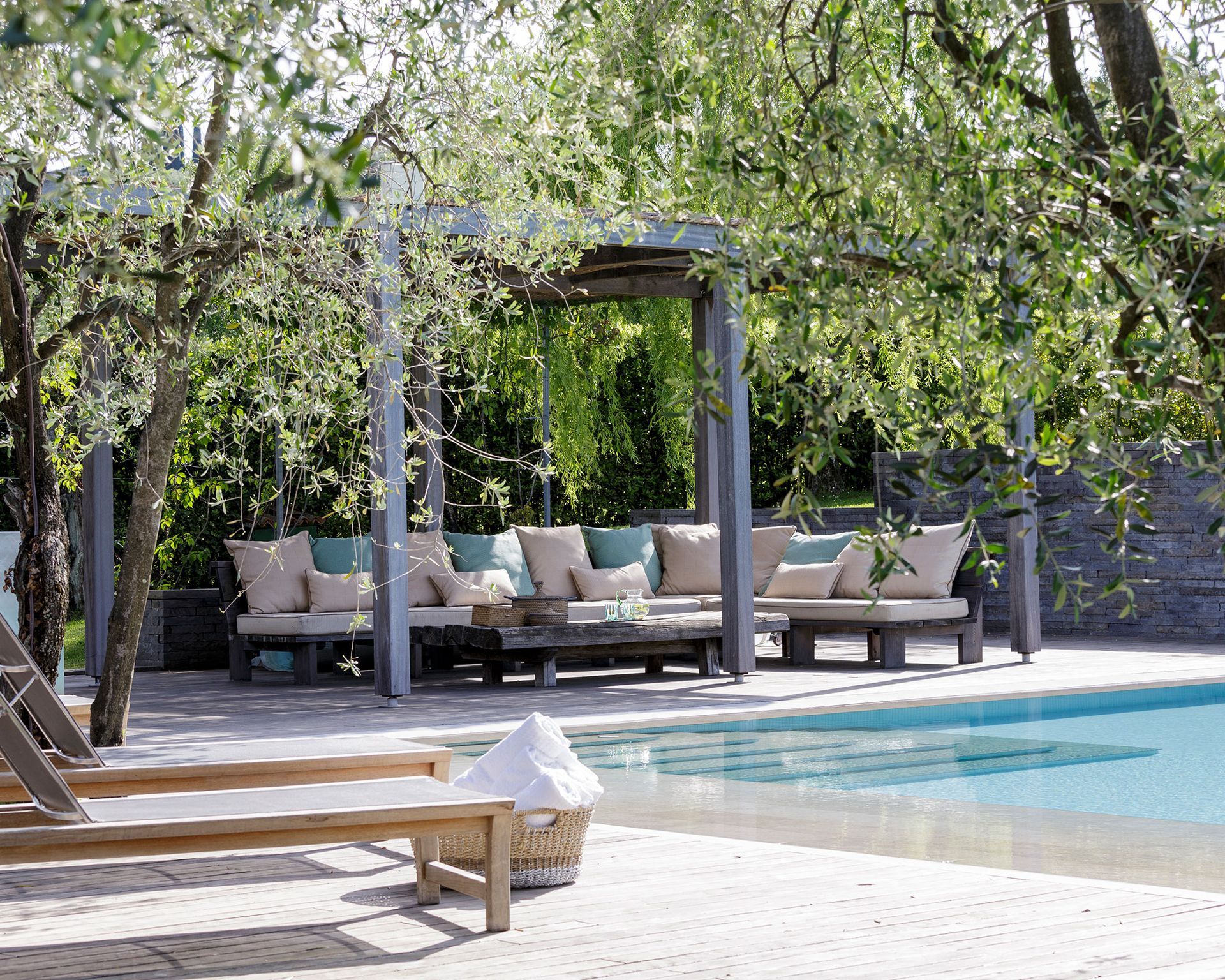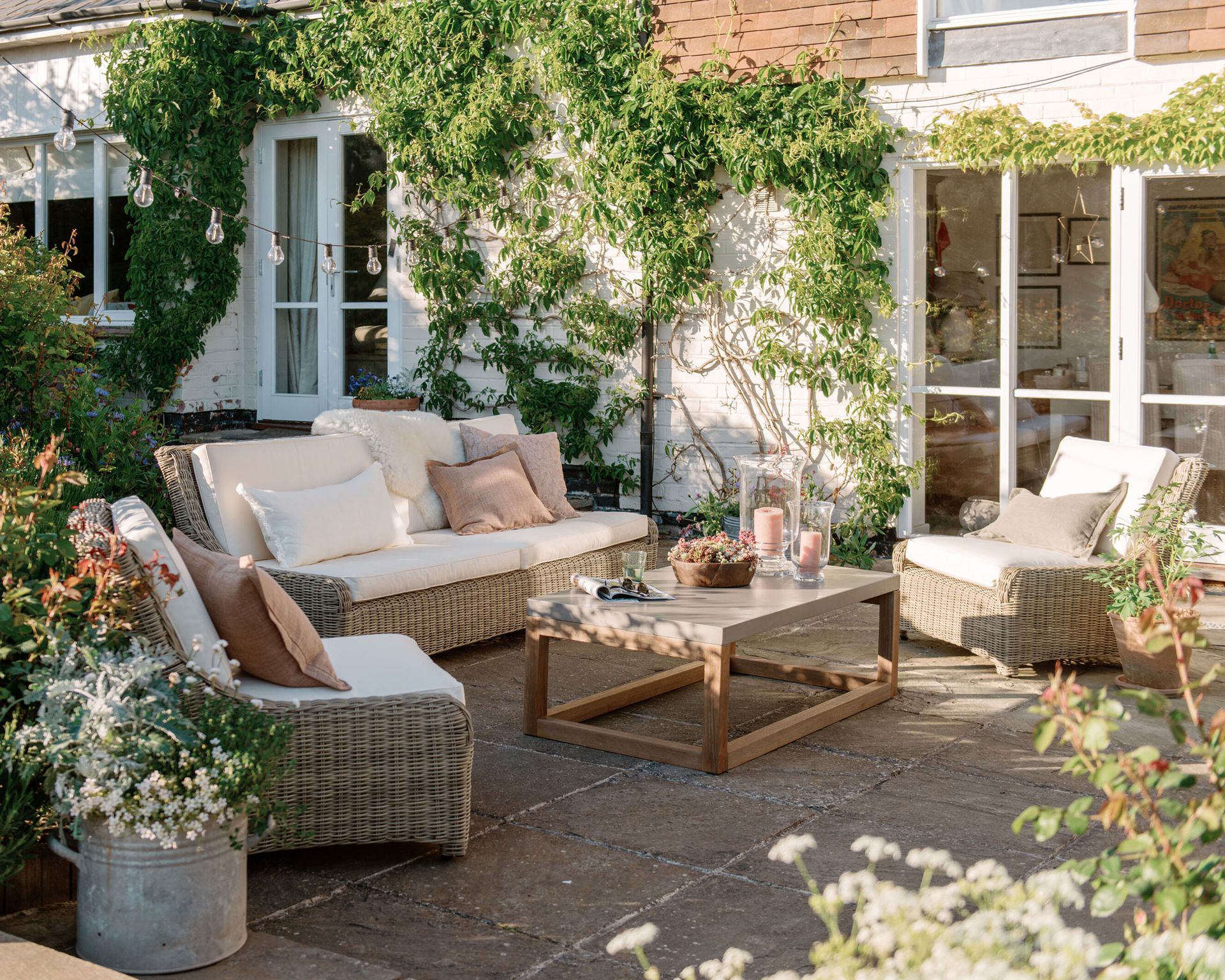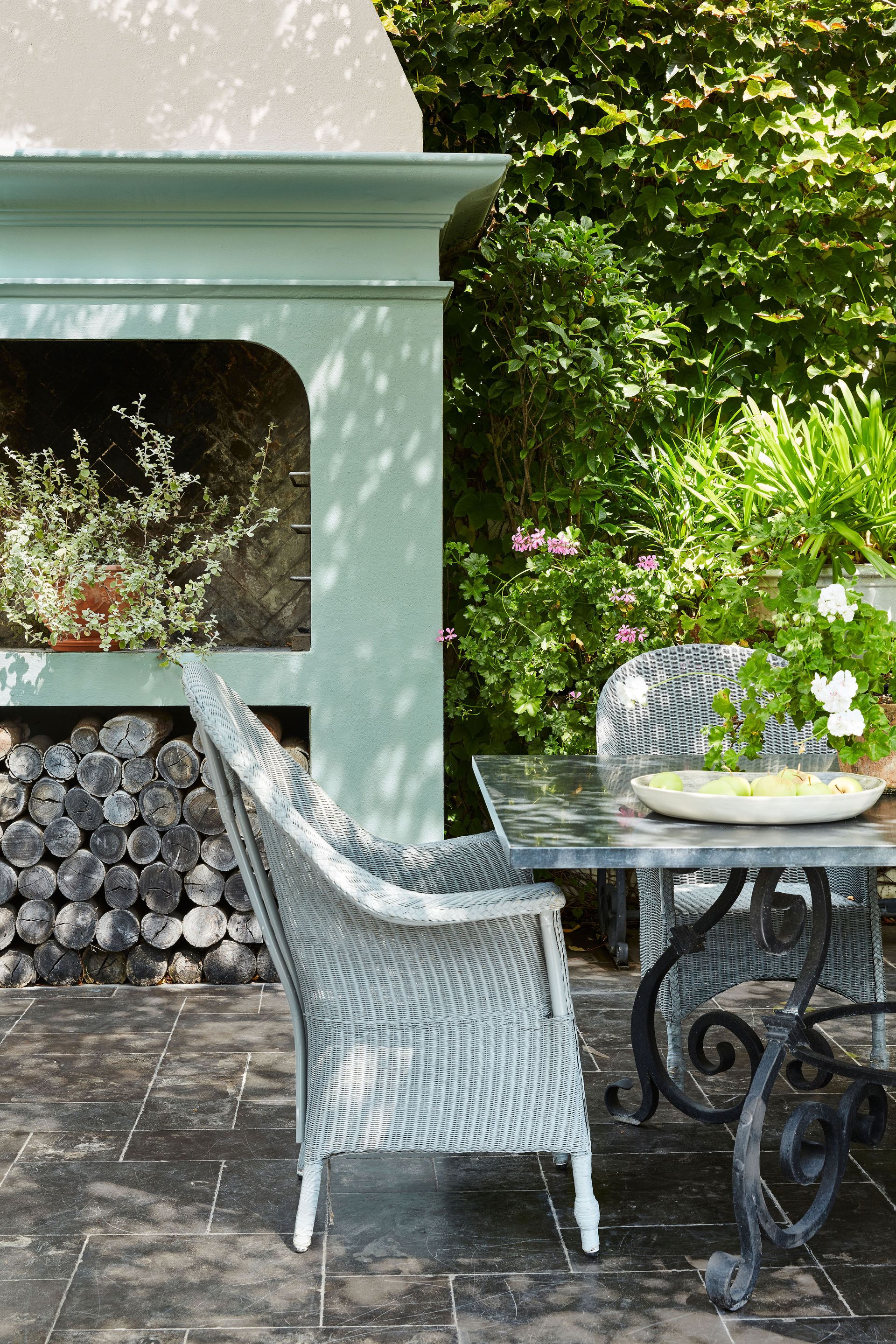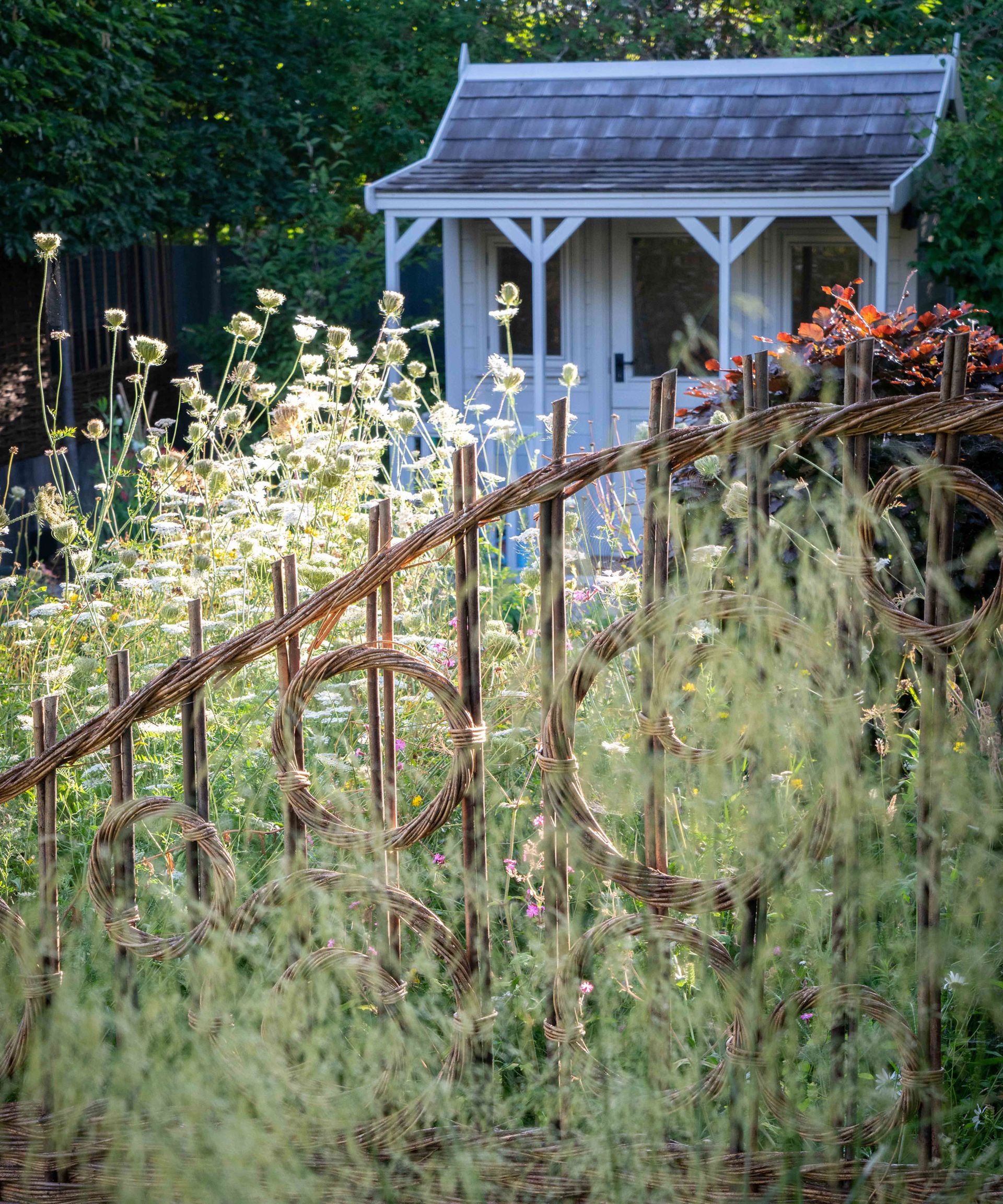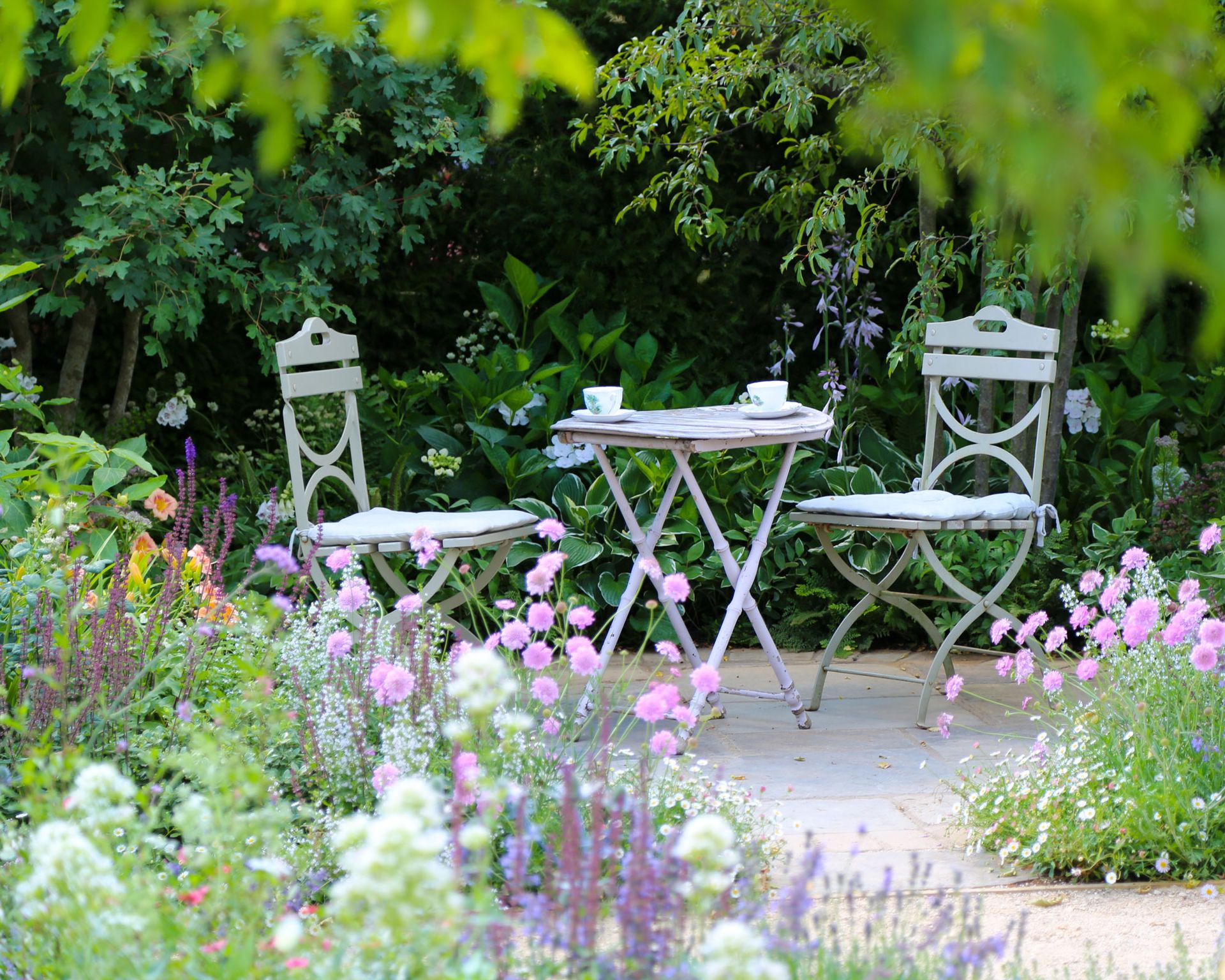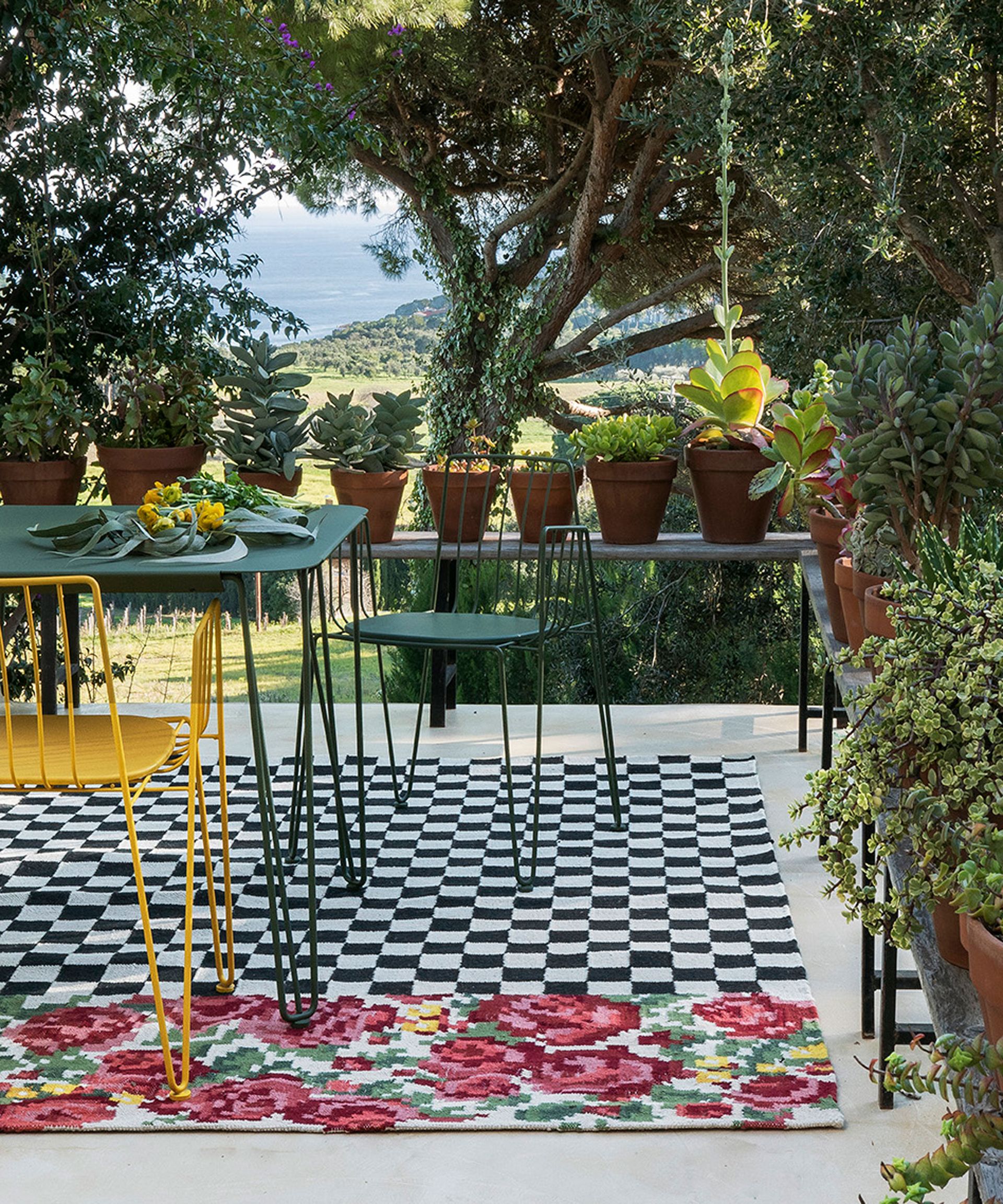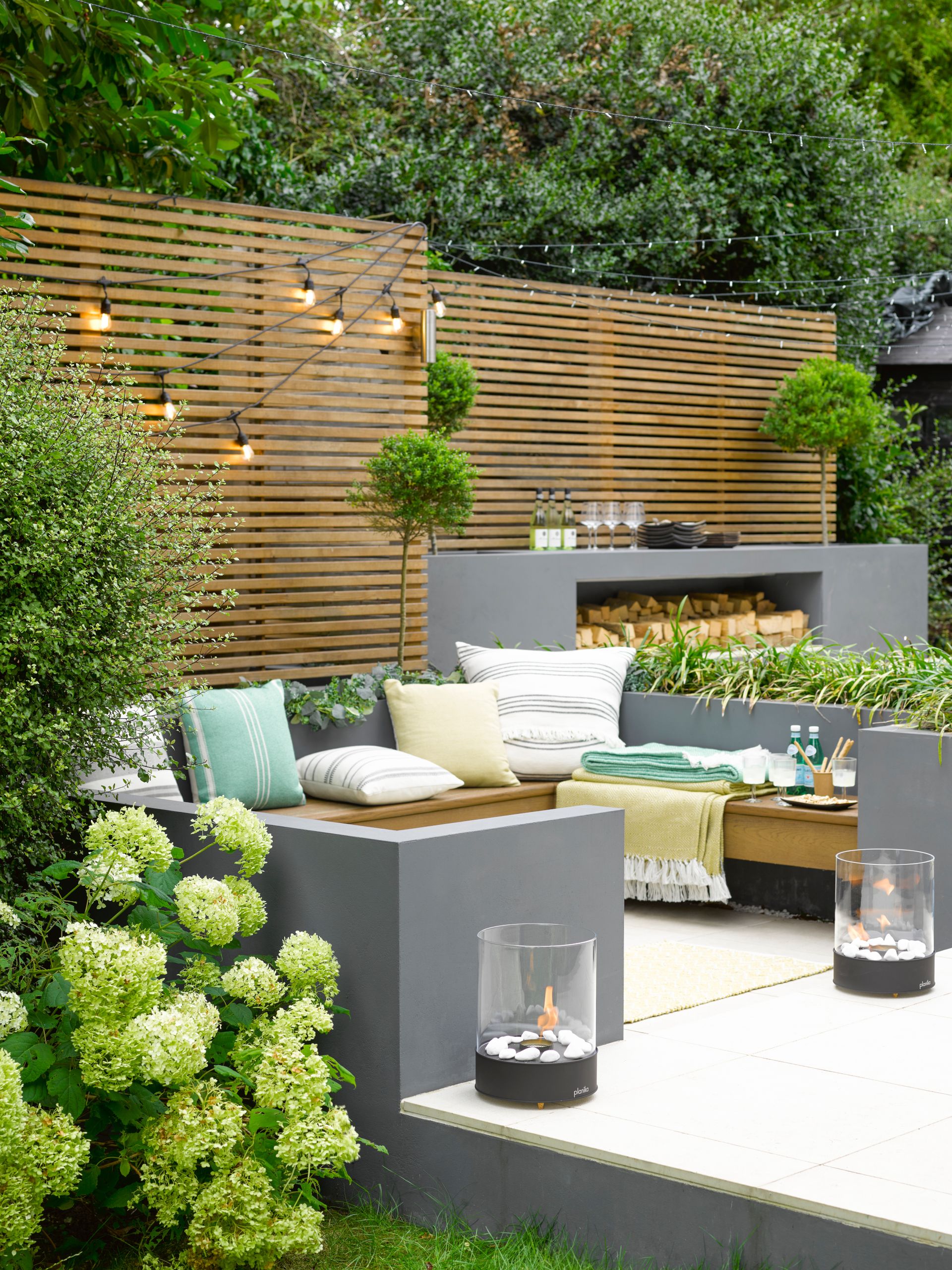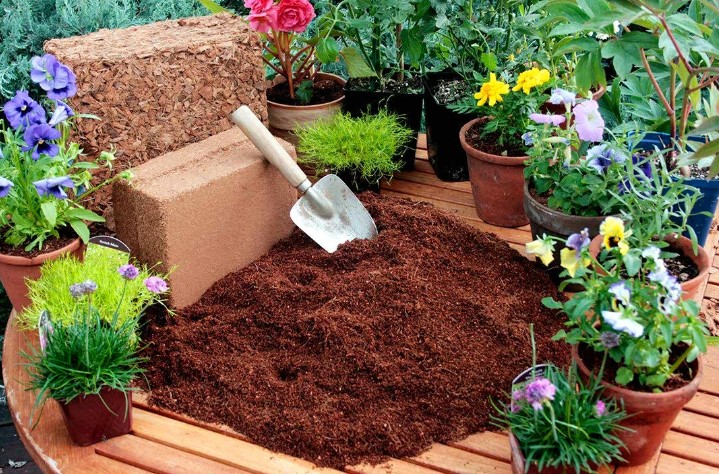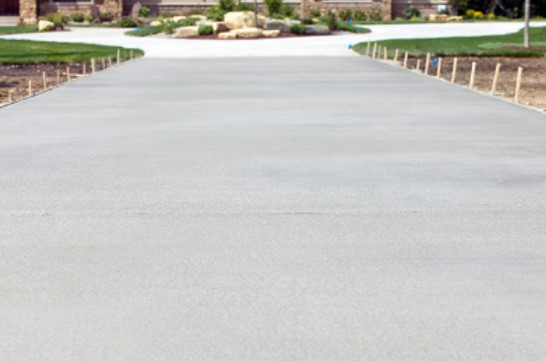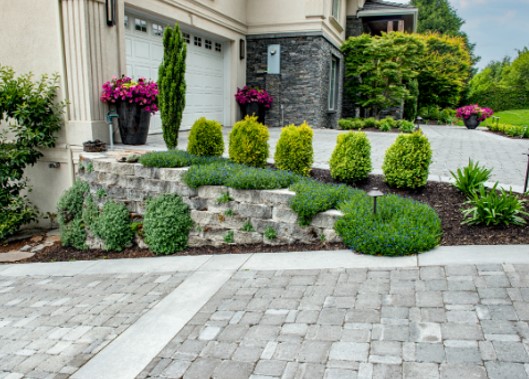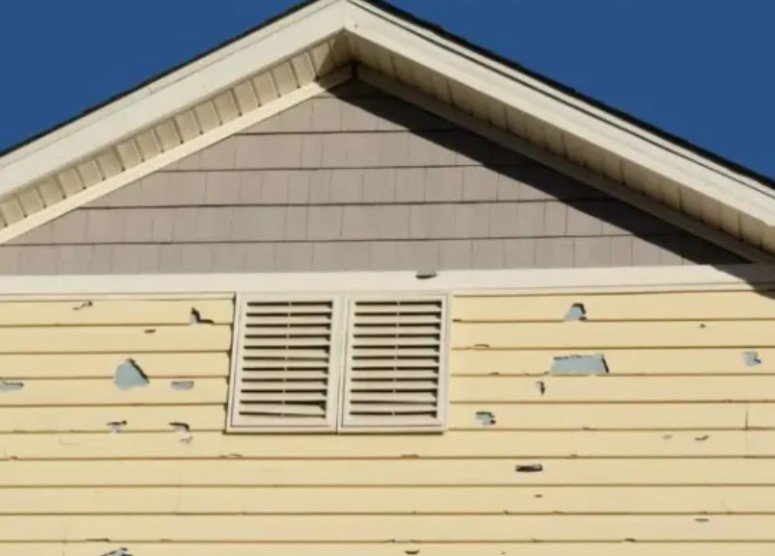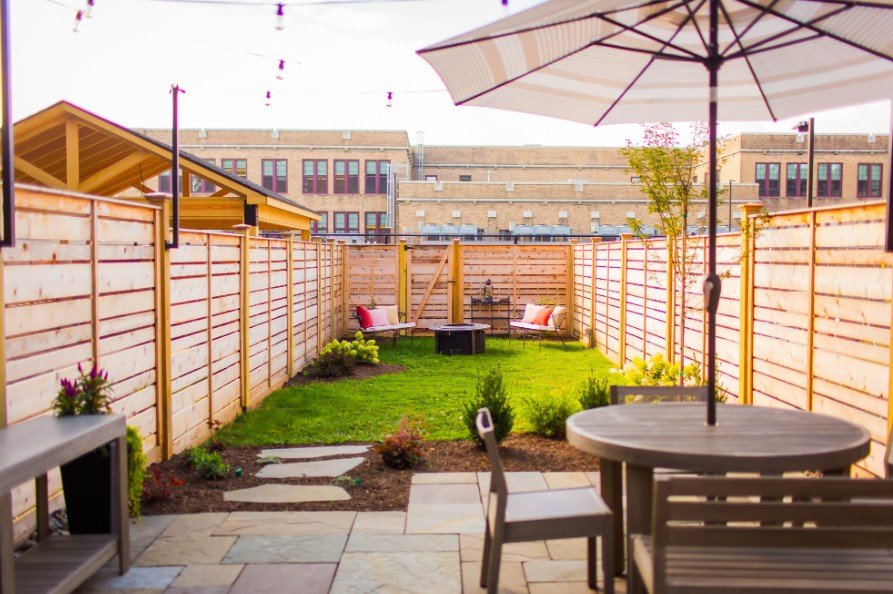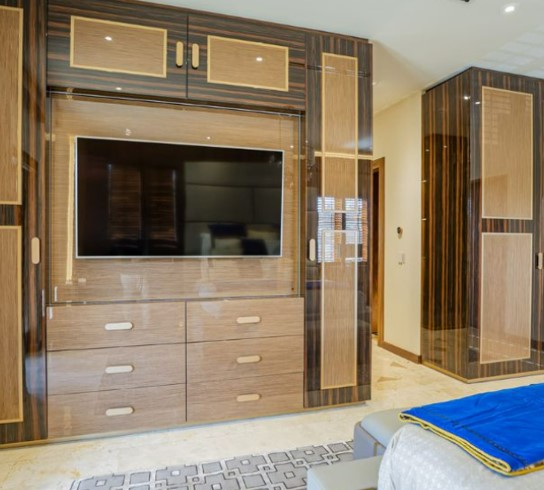30 beautiful designs you’ll love for your yard |
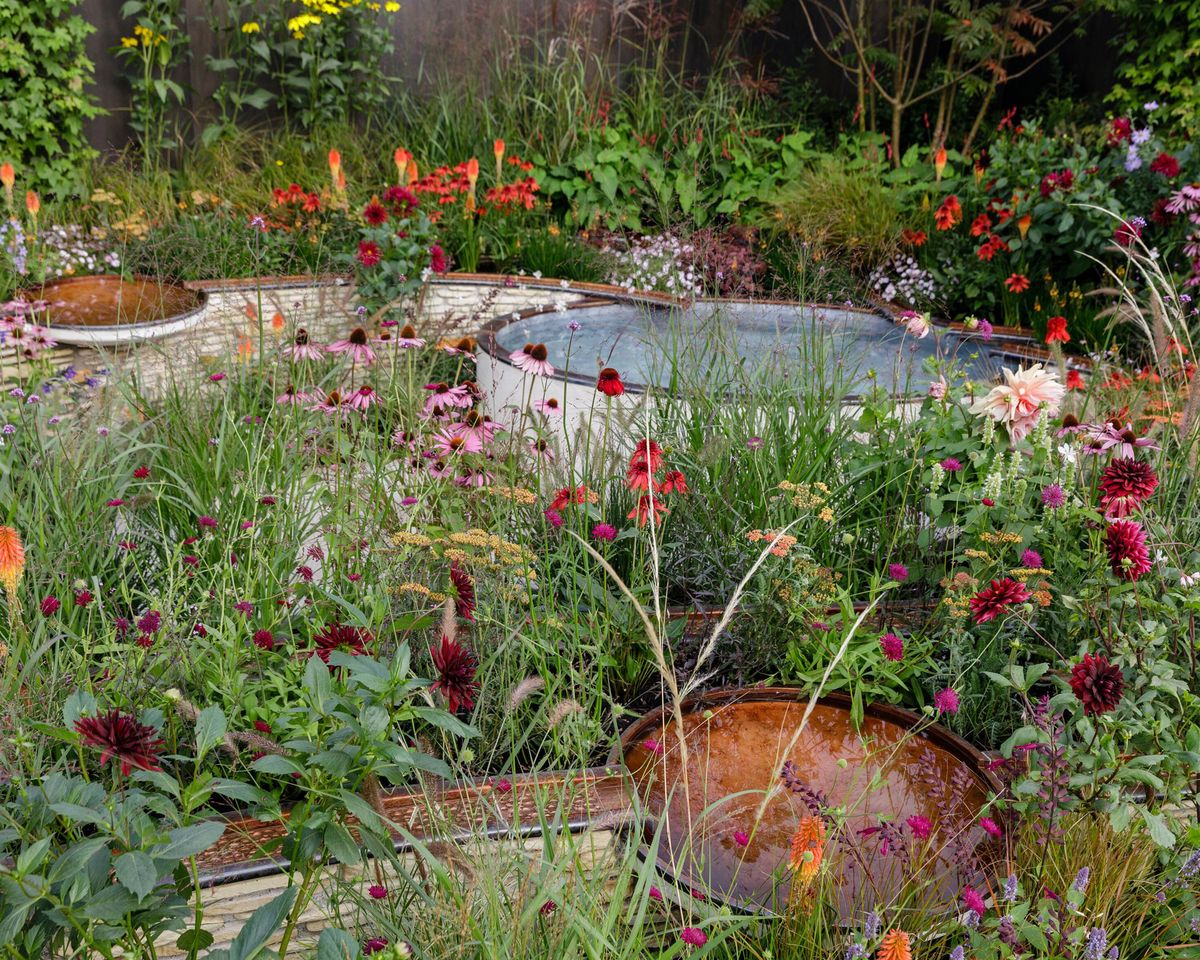
This round-up of garden ideas will help inspire you to create a wonderful retreat in your backyard. Garden ideas can cover everything from quick improvements, such as new containers packed with blooms to larger-scale projects, such as redesigning an area of your garden for vegetables.
In good weather, our gardens are our go-to spaces. They have the power to create the peace, purpose and pleasure we all need in our lives. Plus, they can provide us with cut flowers, vegetables and herbs.
So, if you’re looking for garden inspiration and design ideas for your outdoor spaces, look no further than our pick of the best garden ideas for any size or shape of space.
Garden ideas
We have covered garden ideas of every manner in this guide, from coastal to English to vegetable garden ideas. Take inspiration to create a space that’s personal, and special, to you, whether a relaxed and informal family space, or a more formal garden design.
1. Grow a garden you can bring indoors
(Image credit: Getty Images)
If you love flowers, why not plan a cut flower garden? All this really involves is planning your planting around the blooms you love. It might be that you indulge in typical English garden ideas, such as rose garden ideas, for example, or perhaps Mediterranean garden ideas are more suited to your local climate?
‘Plant roses among grasses and perennials, with the plan to let them intermingle,’ says award-winning garden designer Colm Joseph (opens in new tab). ‘When choosing roses, go for those with simpler, open flowers that are closer to the wild or hedgerow roses, rather than anything too ornamental or blousy. Although wild roses only usually flower once in early summer, they produce beautiful hips for fall and winter interest.’
And if you’re looking to keep your roses – and all other plants – healthy, then you may need to learn how to add calcium to soil. This act will ensure the soil is at the best pH for growth as they encourage strong cell walls that ensure the plant grows upright.
2. Grow a kitchen or herb garden
(Image credit: Future/Leigh Clapp)
You needn’t have a large space to grow fruit, vegetables or herb. You can be creative with kitchen garden ideas and grow it all in one huge pot, or in a series of container gardening ideas.
‘If you are a beginner to gardening or have little time for maintaining a garden, herb garden ideas are simple and satisfying,’ says Homes & Gardens‘ garden editor Rachel Crow. ‘You can grow enough in a container like the one above, in a window planter or even indoors.’
3. Pack a punch in a narrow space
(Image credit: Future / Annaick Guitteny)
If you are looking for plenty of planting but have a thin plot, look to clever narrow garden ideas. One of the best is to put in neat raised beds and layer planting, from tall to mid-height to low to make your flower beds pack a punch.
‘Planting trees to espalier is a good way to create screening and plenty of greenery without allowing trees’ branches to protrude into a narrow garden,’ says Rachel Crow.
4. Create a garden that loves dry conditions
(Image credit: Jo Thompson Garden Design/ Photograph Rachel Warne)
If you are looking for coastal garden ideas, it pays to plan a dry garden that can withstand a lack of rain, and look to south-facing garden ideas for ways to mitigate against the potential lack of shelter and more extreme weather.
‘Putting in coastal plants will save you the heartache of losing plants you love but which just aren’t suited to the conditions,’ says Lucy Searle, Editor in Chief of Homes & Gardens. ‘If the climate in your zone is wetter, you can look to include tropical garden ideas, but the key to success is always to pick plants that suit your locale.’
Whether you are going for a tropical or coastal garden design, consider breaking up the landscaping with rock garden ideas and gravel garden ideas.
5. Consider plants for a north-facing plot
(Image credit: Tom Massey)
If your garden gets little natural light, you’ll need to look specifically for north-facing garden ideas. For your borders, this includes the best shade plants, including the best shrubs for shade that can keep your garden green throughout summer and winter.
But it will also include tricks to keep the garden light and bright, from choosing white-flowering plants to laying pale-colored, light-reflecting stone or wood for your patio. There are many different white garden ideas you could try.
6. Plant a sensory space
(Image credit: RHS/Sarah Cuttle)
Sensory garden ideas can be incorporated into any garden’s design, whatever its style or size.
‘Sensory gardens are all about the emotional and physical effects they have on you,’ explains Homes & Gardens‘ Digital Editor Jennifer Ebert. ‘This includes everything from sensory garden plants, which are a real treat for the senses, through to the textures you can enjoy visually and through touch of the materials you choose for your hard landscaping. Even the sound of trickling water can be a sensory treat, and of course, blocks out the sound of everything from traffic to neighbors.’
7. Plan vertical planting into a small space
(Image credit: Future / Mark Bolton)
Vertical garden ideas include everything from living walls through to planting on terraces in sloping gardens.
‘Don’t be afraid to use tall or upright plants to emphasize the verticality of your plot,’ says gardening writer Natasha Goodfellow (opens in new tab). ‘Sloping gardens can be difficult to work with but they are also often far more interesting and appear larger than a flatter site.’
8. Plant sustainably
(Image credit: Beth Chatto’s Garden and Nursery)
Sustainable garden ideas really ought to be higher up on our list. So where to start? Gardening sustainably is all about planting what will thrive in your local climate so that you have to have as little input as possible in maintaining them with precious resources, such as water, for example.
‘If possible, start with the structure: trees, then hedges, shrubs and climbers,’ says Marian Boswall, author of Sustainable Garden (opens in new tab). ‘After that, consider herbaceous perennials and, finally, annuals.’
9. Create a view
(Image credit: Claire Merriman Design)
Designing a vista that you can enjoy just a step from your property is top of the garden ideas wish list. Think about how entertaining spaces can flow out from the house with seating areas and smart patio ideas.
In this total overhaul of an overgrown five acre site, central to the design is the large terrace area that sweeps around the house allowing views straight out from the kitchen and living room across colourful borders to the lake and wildflower meadow beyond.
‘To maintain those views, patio planting across the terrace is predominantly low with swathes of colour from Lavandula angustifolia ‘Hidcote’, Rosmarinus ‘Tuscan Blue’ and Veronica umbrosa ‘Georgia Blue’,’ says Claire Merriman of Claire Merriman Design (opens in new tab).
‘Repeated spheres of Elaeagnus ebbingei, Hebe topiaria and Pittosporum tobira Nanum pull the areas of the terrace together while stunning multi-stem Koelreuteria paniculata trees allow views out into the wider landscape.’
Pots on the terrace allow seasonal planting to be added throughout the year.
10. Design with water in mind
(Image credit: Butter Wakefield)
Water is a wonderful element to incorporate into outdoor spaces. Not only will it attract wildlife but the sight and sound can be incredibly soothing especially in town scenarios.
‘The magnificent scale of an antique limestone trough adds immediate importance to this city garden,’ says garden designer Butter Wakefield (opens in new tab). ‘It effortlessly creates a sense of drama whilst providing a focal point to the immense side elevation of the house.’
For unique water feature ideas, frame a trough like this with a combination of white and pale pink climbing roses and the evergreen jasmine.
11. Divide a large lawn with hedges
(Image credit: Charlotte Rowe)
‘Over-large lawns can feel purpose-less,’ says designer Charlotte Rowe (opens in new tab). Dividing the space into garden rooms will ensure that green spaces have different purposes, such as a terrace area for eating or a patch for growing vegetables.
In this project, a rethink of a garden resulted in two lawns separated by layers of box and hornbeam as well as pleached hornbeam trees, which is among the ideas for landscaping with evergreens.
‘The pleached central hedge cleverly divides the garden, but also allows views down into the shadier part of the garden where the owners have raised garden beds with vegetables and salads as well as a garden shed,’ adds Charlotte Rowe.
Subtle lighting makes this garden atmospheric at night – key trees and pleached hornbeams are uplit while Cor-Ten steel posts, with a rusty finish, create low level lighting along the gravel paths.
This is one of many backyard landscaping ideas for bigger gardens.
12. Create presence and proportion
(Image credit: Joanne Alderson)
In big open spaces, this is one of those garden ideas where it is possible to create interest and intrigue with large-scale topiary and symmetry. The classical Georgian style house in this project, designed by Jo Alderson Phillips (opens in new tab) and Rob Jones, needed a garden of equal presence and proportion and was built on the site of a neglected tennis court.
‘The anchors here are a succession of yew topiary domes leading through each colour coordinated garden with the owner’s sculptures creating beautiful sight lines,’ say the designers. ‘We bought the topiary, which each weighed two tonnes, at Solitair in Belgium, a nursery that specialises in these fantastic mature specimens.’
Hedges and intriguing doorways around the garden are planted with Ilex crenata ‘Dark Green’ (Japanese box) and more structural evergreens are provided by umbrella pruned Pinus sylvestris with Osmanthus fragrans providing scent later in the year.
13. Define a path
(Image credit: Charlotte Rowe)
Whatever the shape or size of your garden, it will almost certainly have a path that travels from the back door to the end of your garden. Think about the function as well as aesthetic when looking at garden path ideas and deciding on the line or curve of your path.
In this garden by Charlotte Rowe, in the far end of the garden a swathe of Lavandula angustifolia ‘Munstead’ fragrances the air alongside the path, providing summer nectar for the bees. Understated chunky wooden benches are placed on the other side and under the shade of the garden’s mature trees to create a place to sit and admire the garden.
14. Install a fireplace
(Image credit: Little Greene)
Whatever the season or climate, a permanent outdoor fireplace is a design focal point as well as a source of heat in the cooler times of the day.
Bear in mind that these kinds of fireplaces need to have specialist installation and look for high quality, compact outdoor fires that can withstand year-round weather conditions and use.
15. Be bold with color
(Image credit: Little Greene)
Color is the new eye catcher for garden ideas. It’s often the norm in classic gardens to paint outdoor details in harmonious colors to blend in with surroundings, but outdoor worthy paint formulas are meaning that we can paint architectural features, such as pillars, garden walls and screens in all manner of uplifting hues.
‘We love the idea of adding unique combinations to create a Mediterranean feel amongst dark green foliage,’ says Ruth Mottershead, Creative Director of Little Greene (opens in new tab).
Pair a piercing blue paint like ‘Marine Blue’ on architectural details and pillars with a hit of bright sunshine yellow using plant pots painted in ‘Mister David’.
16. Create a night garden
(Image credit: Vincent Sheppard)
Good outdoor lighting ideas are key to creating a perfect ambience outdoors and adds a certain je ne sais quoi to social events. Chosen carefully, it submerges everything in a warm glow while adding a magical touch to your evening.
‘Garland lights are a classic way to create a celebratory atmosphere as night falls – a little roof of light which literally brings people closer together,’ says Coralie Claeys, Managing Director of Vincent Sheppard (opens in new tab).
These ‘Light My Table’ string lights can be clipped onto the sides of a table and don’t need to be fixed to anything nearby.
17. Be playful with sculpture
(Image credit: David Harber)
When embellishing the garden with additional decoration like a sculpture, consider its surrounding environment and the impact your garden decor ideas may have on your chosen design and overall space.
‘Decorative items can both harmonize with their immediate surroundings in tone, texture and form or, indeed, create a striking contrast,’ says sculptor David Harber (opens in new tab).
‘For example, a bright, bold reflective metal piece will both mirror its immediate environment and effectively borrow character and charm from the planting and landscaping surrounding it.’
18. Take tiles from inside to outside
(Image credit: Little Greene)
Incorporating decorative tiles into an outdoor scheme can create a transition from the house to the garden. This can be particularly effective if the same tiles are used inside and out creating a fluid line from interior to exterior.
‘Decorative tiles also work particularly well in small gardens,’ says Lee Thornley, founder of Bert and May (opens in new tab), ‘and can help to define zones.’
Lay them on the floor and up walls to create an inviting feature or outdoor room – this works particularly well if you are looking for outdoor kitchen ideas which demands a natural transition between indoors and out.
19. Use screens to define areas
(Image credit: Screen with Envy)
Garden screens are one of those garden ideas that are an excellent way to create little sanctuaries. Great for providing both garden screening from neighbors and some faraway escapism with pretty Moroccan inspired fretwork.
‘Be creative with the screens you use, using them to section off areas of your outside space to create specific relaxation zones,’ says Sophie Birkert, founder of Screen with Envy (opens in new tab). ‘This year has seen the home become multifunctional and this can be extended into the garden, with different sectioned off areas designated for different activities.’
How about a kids-only area and a cozy snug just for the adults?
20. Choose furniture to last
(Image credit: Little Greene)
When buying garden furniture, it’s important to think about maximising its use. Look at arrangements that focus on comfort which will set the scene for a lazy brunch, or smart armchairs which add a little glamour for cocktail hour.
‘Sun-soaked spaces are ideal for al fresco entertaining, so choose lightweight furniture that you are able to move your seating to follow the best light,’ says Barlow Tyrie (opens in new tab).
A pedestal table with taller legs will create elegant long shadows as time passes, and a high vantage point dramatically enhances your view of the garden and beyond.
21. Plant a long border
(Image credit: Greencube)
The secret to a successful long border is planting throughout the seasons. In the sunny flower bed idea above, a purple, white and pink fusion was planted by Mandy Buckland of Greencube (opens in new tab).
‘The backbone structure includes Taxus domes and Hydrangea ‘Madame Emille Mouillere’ but in June it is time for the herbaceous perennials to inject some colour,’ says Mandy.
‘I planted Nepeta ‘Walkers Low’ along with Salvia ‘Caradonna’ with added Foxglove seeds to provide vertical height as well as Allium ‘Mount Evereste’. Geranium ‘Rozanne’ covers the ground and keeps the weeds out, filling the gaps a workhorse of the mix, this matrix planting changes throughout the seasons. Next are the Pennisetum ornamental grasses along with the Hydrangeas to take the border into Autumn.’
Remember to add height and contrast in the background. Mandy Buckland included standard Ilex ‘Nellie R Stevens’ trees to add interest to the background Beech hedge.
22. Add a firepit area
(Image credit: Magma Firepits)
A moveable heat source in the garden means we can stay out longer and later whatever the season. Choose from backyard fire pit ideas, chimneas, and bowls.
‘I have a firepit in my garden that also doubles up as a barbecue,’ says designer Sarah Vanrenen (opens in new tab), ‘and we enjoy many nights outside by the fire cooking and keeping warm at the same time.’
Create a zone in your outdoor space that feels like an outdoor living room or cozy nook.
‘Sometimes a patio can be daunting because there are no defining walls or parameters so I often treat gardens as I do houses, and make “rooms”, by compartmentalising with planting to make different and interesting areas to go to and to sit in,’ adds Sarah.
23. Make your garden bee-friendly
(Image credit: Future/Val Corbett)
Every garden regardless of size can be both bee friendly and beautiful. Bees, like us, favour flowers with bountiful open blooms, and long flowering seasons.
‘Bees are after pollen and nectar and generous examples include geraniums, lavender, open dahlias and globe thistle,’ says Sean McMenemy, Director of Ark Wildlife (opens in new tab). ‘Plus herbs such as marjoram, sage and chives and flowering shrubs like buddleia, cotoneaster and apple blossom.’
Why not make a bee ‘nectar filling station? It’s simply a pot or pots filled with flowers that attract bees and a shallow dish of water (bees need to drink). Make sure you keep flowers blooming in the pot from March to September by changing them as they fade.
24. Position a pergola
(Image credit: Future / Mark Bolton)
A pergola is a simple way to create an enclosed space with a smattering of fragrance if the right plants are incorporated. Be sure of your reasons for embarking on this kind of project before you get going as size, position and planning permission all need to be considered when you’re looking at pergola ideas.
‘Only have a pergola or an arbor if you think you absolutely need one,’ says designer Charlotte Rowe (opens in new tab). ‘I say this, as often people think that they will give you shelter from the rain when in fact they really don’t and are more useful as a garden shade idea providing shade from the sun. So my first tip would be to think carefully about whether a pergola or arbor will add value to your garden and be sure that it will not give you too much shade!’
Then consider position. You can create a sense of romance with your chosen placement.
Garden designer Rebecca Smith (opens in new tab) recommends a pergola that arches over a path through the garden to create a shaded and scented tunnel: ‘In a long garden, a pergola placed at the end of the garden can create a “destination” for different times of day and can also help screen a garage or garden shed for view,’ she says.
25. Dress your space
(Image credit: Neptune)
When designing an outdoor space it’s important to consider a number of things, primarily comfortable seating, lighting and texture.
‘Our Hayburn sofas are the perfect way to combine comfort and relaxation with contemporary aesthetic and efficient design,’ says George Miller, Home Designer at Neptune (opens in new tab), of the brand’s patio furniture ideas.
‘With deep-seated cushions and an all-weather wicker-weave base, the seating has been designed to be outside rain or shine. Add a simple sheepskin or throw to ward off the cool evening chill and scatter cushions for a drop of color. Dressing your space with layers will create character, personality and an inviting atmosphere.’
As for lighting, weather-proof cordless lamps and festoon lights are both perfect for sliding into the darker nights.
26. Consider pavers
(Image credit: Little Greene)
In their various finishes – ranging from wood or stone effects to tactile surfaces that resemble concrete – tiles combine superlative appearance with outstanding longevity.
Be sure that whatever you choose for your patio the materials are resistant to loads, slipping, frost, thermal shock, mould, stains and the action of chemicals including salt, often used to prevent ice on outdoor surfaces.
Gardens, patios or paths across lawns can be laid dry on sand and gravel for a contemporary take and facilitates drainage.
27. Work with a garden designer
(Image credit: Farlam and Chandler)
‘Most designers are “civil engineers” with a love of plants, meaning that the entire project comes under their jurisdiction,’ says Louisa Bell MSGD.
But it’s not just about the technical side. ‘A good designer has the imagination to create a bespoke design for you,’ says Juliet Sargeant FSGD, ‘plus the ingenuity to solve the site problems and the practical experience to implement the plans cost-effectively.’
Being clear about your needs from the offset will help with the design process and a good designer will make sure to draw out every detail about exactly what your wants and needs are – knowing how to commission a garden designer will help get the best from them.
‘The best projects are formed by a great working relationship and the process is fun. The right designer will be able to help in the right way,’ add Ben Chandler of Farlam & Chandler (opens in new tab).
28. Plant a cottage garden
(Image credit: Rosemary Coldstream)
Traditional cottage garden ideas encapsulate a hand-made, do-it-yourself style of gardening. When it comes to planting include a mix of simple flowers and edible plants.
‘Always think right plant, right place’,’ says garden designer Rosemary Coldstream (opens in new tab).
Roses are the first choice but they must be scented. Then add height with Hollyhocks, Delphiniums and Foxgloves. For other flower shapes try the flat panicles of Achillea, ball shaped inflorescences of Globe Thistle (Echinops ritro) or cheerful daisy flowers of Leucanthemum or Rudbeckia.
‘Scented, herbal and healing varieties will by definition be beneficial to butterflies and bees, and when combined with some good structure you will have a chocolate box image of an English garden,’ adds Debbie Roberts of Acres Wild (opens in new tab).
29. Define a space with a rug
(Image credit: nanimarquina)
For courtyard gardens, roof gardens, terraces, yards or other outdoor areas, a rug is a useful way to define a zone and create a purposeful area. Go for an outdoor rug that has the design and feel of its indoor cousins but is water and weatherproof.
‘I like to design rugs that are visually amazing, that people will enjoy,’ says Nani Marquina of nanimarquina (opens in new tab).
Choose materials that are weather resistant such as recycled PET fiber that gives a second lease of life to plastic bottles, guaranteeing the traceability and certification of the materials and the manufacturing processes.
30. Make the most of small gardens
(Image credit: Sadolin)
Small garden ideas really need to punch above their weight. One way to do so is to use all the tricks in the book to make a small garden look bigger, but realistically, you are still going to want to squeeze in outdoor living room ideas, planting and outdoor dining ideas. The best solution? To combine them into one neat floorplan, like in this compact space above.
How can I make my garden look more beautiful?
‘Designing’ our gardens as opposed to just ‘gardening’ our outdoor spaces is the starting point for the nirvana of a ‘beautiful’ garden. Just like a good-looking room, the trick to how to plan a garden perfectly is to consider how the space is used, how you want it to make you feel, the colour palette, the personality and the functionality.
Designer Ben Chandler of Farlam & Chandler (opens in new tab) takes a look at the owner’s tastes when it comes to defining the right style for a project – and you can take the same approach.
‘We ask our clients what they enjoy about gardens, whether they have favourite gardens or houses they have visited and if they have favourite plants,’ he says.
Here’s what to consider:
- Think about the space as a whole. Is it pleasing to the eye? Does the space flow from area to area? Drawing the eye to a series of focal points gives the garden multi-dimensional interest. Small trees that look good in all seasons, such as the Himalayan Birch ‘Grayswood Ghost’, are a way to punctuate an area. But structures, furniture and objects, such as an outdoor rug or mirror, also work.
- How do you want to feel in your garden? Emotions play a big part in how we experience a space. Make a list of what’s important to you. For instance, do you want to feel relaxed? Then a hot tub, sauna or a yoga space could be a good idea. Is fun and play important? Perhaps a games area where a tennis table, petanque or table football would be worth considering.
- Play with the senses. A garden that truly nourishes the soul is not all about looks – scent, sound, movement, light and texture all have a role, too, and adding them to the mix will make your plot extra special. For a sensory garden, combine touchy-feely grasses, such as Stipa tenuissima, with the highly scented, brightly coloured blooms of oriental lilies. Cover pergolas in wisteria and roses to perfume the air.
- Make it functional. Many of us are trying to make the most of garden spaces. We’re really looking to our gardens as a space for connecting with friends and family, so having the capacity for socializing is essential. Entertaining garden ideas and outdoor kitchens are the perfect example of this as cooking can be such a communal activity. The fun doesn’t have to stop at barbecues either – you can build up a whole kitchen area complete with grill, pizza oven and prep area. External showers and baths are also hot on everyone’s lips especially for coastal or lakeside properties. An outdoor shower or bath couldn’t be easier to fit. Hot water can be installed easily next to or near an existing exterior tap or on any wall that has a cloakroom, bathroom or kitchen on the other side. You may also want to include areas for growing, composting and storage.
- Color theming is the icing on the cake. What palette do you want to achieve – all white, purples and greens, a color spectrum? Research flowers, trees and shrubs that fit your theme and work towards a limited garden color scheme of maximum five colors.
How can I make my garden easier to look after?
Let’s face it gardening can be time consuming and sometimes we just don’t have the patience or inclination to tend to our green spaces. Here are a few simple garden ideas to make life a little easier…
- Zoning your outdoor space into areas or ‘rooms’ is a popular trick. Pergolas, trellis ideas, dividers, archways, walls, hedges and doors can all be used to divide even a garden into two or more smaller areas, each with their own individual mood or uses. Garden zoning makes caring and tending more manageable and on the plus side adds interest and allows you to incorporate different garden styles
- Know your plants. Reading up on the preferred growing conditions of plants before you buy them will save you time, energy and money. Sun-loving roses, for instance, won’t thank you for being put in the dark, whereas the ‘Olivia’ from David Austin Roses, will thrive in shaded areas. Self-seeders, such as poppies, aquilegia, forget me knots, will come back year after year with very little maintenance.
- Hard landscaping is an easy win as it cuts down on lawn mowing and maintenance. Large areas of pavers or tiles can easily look dull, but there are ways to bring it to life. You can transform pedestrian grey paving by replacing a few slabs with a square of lawn turf or herbs, such as thyme and camomile, creating an attractive chessboard effect. Laying a new path or patio? Go for sustainable stone in a style that suits your outdoor space. Herringbone brick gives the feel of a cottage garden, while travertine paving injects a modern air. Pea gravel looks good anywhere, plus it deters burglars!
What are good themes for a garden?
There are a myriad of garden styles the world over that can adopt or use as inspiration for our own gardens. The following garden ideas will help you:
Wild meadow ‘Habitats for our native wildlife are shrinking – but it doesn’t have to be this way. Planting a wildflower meadow as well as giving nature space to recover by leaving areas of gardens to go wild all makes a difference.’
So says Mark Wright, Director of Science at the WWF (opens in new tab). The first step is shifting your mindset around gardening. Don’t be afraid to let your outdoor spaces grow a little wild as wildflower habitats have traditionally provided a home for bees and beetles to birds and small animals to thrive in! Choose at least some plants that are native – whether trees or shrubs, hedges or wildflowers – and others that are attractive to insects. For example, buddleia is great for butterflies, whilst lavender, Verbena bonariensis and Echinops all provide pollen and nectar for bees.
Woodland If you live in a rural area, you may already have the making of a garden dominated by native trees and vertical climbers. Look to the base of those trees for signs of the ‘woodlanders’ as gardener Carol Klein calls them. Snowdrops, bluebells, aconites, epimediums and hellebores are typical small plants that love the shade and damp conditions. You can build upon this habitat by planting by the seasons: spring bulbs such as cyclamen and narcissus, taller summer bulbs such lilies, mixed with unfurling and fronded ferns and interesting colored barks.
